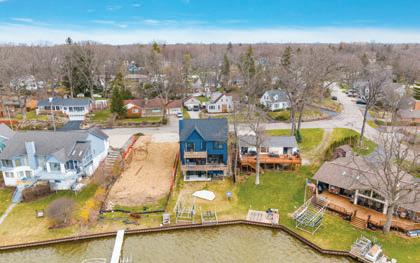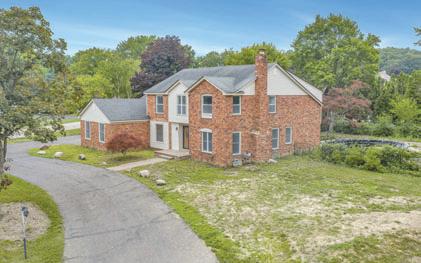
STATE OF MICHIGAN’S





























David Hohendorf explains the publishing group’s plan for the Voter Guide for the upcoming elections, and the recent awards won by the team that brings Downtown Newsmagazine to the community each month.
A recap of select categories of crime occurring in the past month in Birmingham, Bloomfield Township and Bloomfield Hills, presented in map format, plus a reminder about an online interactive map with story details on public safety incidents.
With concerns in some states about dwindling water supplies, we take a look at Michigan’s aquifers and the importance of groundwater which supplies 38 percent of the drinking water in the United States, along with irrigation for agriculture and the replenishment of surface waters.
22
John James looks at run for governor; Jill Biden working out in Royal Oak; Principles First hosts first Michigan antiTrump dinner; Nik Gjonaj replaces L. Brooks Patterson’s daughter in exec race; history repeating itself on nominating petitions; plus more.
47
More questions on Birmingham Senior Center; township appeals lake regulations; new BSD director for city; public safety millage on the ballot; school district picks new superintendent; Booth Park improvements; new operating millage for schools; plus more.























C033 RARPUOOFETCNATSIGDN
CAGIHCIWMESN'DR
C |SESHNII F OHNWOTTLIU0B20F | 20S0 WTOKROC T | EERTESNA 000,573S | $K
RNI





Next Executive Director Cris Braun gives readers background on the purchase by the city of Birmingham of the YMCA building at 400 East Lincoln Street to be converted to the new home of Next, the area’s 50 plus community center, as well as providing space for community programs and events.
William Seklar, President and CEO of The Community House, educates readers about the mandate for historic preservation of buildings in a local community and the ways in which local residents can contribute to this effort


Gigi Nichols provides readers with quick takes on what is happening in the world of food and drink in the metro area.
Our observations about the process the city has embarked on to create a permanent home for the Next organization, and our thoughts about the importance of either state, county or local governments to provide further protection for aquifers, groundwater and surface waters in Oakland County.






by


















Not often do we have an opportunity to discuss what we do here at Downtown Publications so I am taking time this month to highlight a couple of items about Downtown Newsmagazine
First, once again the team that labors to bring you our monthly publication has been recognized for its work in a competition sponsored by the Detroit chapter of the Society of Professional Journalists.
The editorial team at Downtown Newsmagazine took six awards at the annual competition for work in 2023.
Cover Design: Chris Grammer, graphics and IT manager, took both the first and second place in this category. First place was for his May cover illustrating the topic of school safety, about which judges said the following: “Gun shot holes (as if through glass) was very powerful and appropriate for the subject.” His second place design award was for the September cover relative to lead particulate matter fallout from local airports owned and managed by Oakland County.

Education Reporting: News editor Lisa Brody took first place for her May story on school safety. Judges said the following: “An in-depth reporting of the reality of gun violence in schools and what districts are doing.”
Environment Reporting: Stay Gittleman took first place for her September longform on lead particulate matter fallout from leaded-gas small airplanes at the three local airports in Oakland County. Judges had this to say about her work: “An extremely comprehensive, thoroughly researched look at an important issue.”
Feature Reporting: Stacy Gittleman took third place in this category for her April longform piece on the gangs operating in Oakland County.
General Column Writing: I took first place for commentary on the legislative push to expand the Elliott-Larsen Act protecting the LGBTQ+ community and columns on financial disclosure by state lawmakers and voting access in Michigan. Judges offered the following comment: “An interesting political column that puts Michigan’s present in the context of its past.”
While we take pride in being recognized by peer group professionals, the most important affirmation we get on a regular basis is the feedback received from local residents who respond to what we have produced here for the nearly 15 years we have been publishing in the Birmingham/Bloomfield area.
When we launched Downtown in 2010 we set out some specific goals or objectives we hoped to reach with each issue. First and foremost, we seek to provide local residents with detailed information on major issues impacting or potentially facing the local area. We tackle these topics through our storytelling that often runs 4,000-5,000 words or more. Hence the descriptive term of “longform.” It is an art that has basically been abandoned on the local level and we can understand why. We often times start planning for these longer pieces several months before you see them in print. They involve considerable research and then collaboration with qualified sources throughout the state and nation.
Our selection of these topics is a direct result of the fact that we are avid readers and we are able in many cases to anticipate important issues on an international and national basis in advance of them arriving on the home front in the local communities. Interested readers can find most of the past longform stories under the “longform” section in the index of our website (downtownpublications.com).
Yes, for the insider baseball fans among us, we do keep track of when we are able to tackle topics that show up in national publications or larger daily publications weeks or months after we have reported on an issue. It tells us we are punching well above our weight class, as the expression goes.
Every election year we start receiving phone calls and emails asking if we are producing a Voter Guide and if we are endorsing candidates, both of which many voters tell us they wait for before casting their ballots.
For both the 2024 August primary and general elections we are producing a Voter Guide, although our method of presentation will be changing somewhat.
Traditionally our Voter Guides and endorsements are included with an issue just prior to election day and then also on our our website (downtownpublications.com). We schedule the Voter Guide to catch those who cast absentee ballots to provide information early in the election cycle. Now, with the most recent improvements in the Michigan election system, voting can start even earlier than in the past.
For a small publishing group, the Voter Guide is a major undertaking and consumes considerable time for weeks in advance of you receiving what we are providing in a print issue. The bulk of this work falls to news editor Lisa Brody and me, whether it is drafting relevant questions we send to candidates, processing responses from those running for office and getting this issue ready to upload to our printer.
Endorsements are another taxing undertaking, serving as the topic of nearly daily conversation weeks in advance of going to press with this issue.
On the local level, Downtown Newsmagazine is the only publication that still hews to the traditional role by providing recommendations on candidates appearing on the ballot, with the exception of the two Detroit daily newspapers.
We will still be devoting the same effort on behalf of our readers but this election year our Voter Guides will only be available on our website, a direct result of the increasing costs of bringing out a print edition that in some past years has approached over 40 pages of content. Printing costs took an enormous jump during the pandemic crisis and, of course, far be it for paper producers to back these prices down. Then there is the cost of postage.
In a couple of more recent elections we turned to the business community and were fortunately able to find a few sponsors to help underwrite some of the costs of the Voter Guides, but even then we experienced losses. And candidates running for office have for the most part turned to social media, direct mail and television so we can no longer count on that source of ad revenue to cover the expense of physically printing Voters Guides.
The August primary election this year in the Birmingham/Bloomfield area does not have a great many primary contests as opposed to the election slate facing voters in November.
Watch for further information as we get closer to posting candidate information online for the August primary election.
David Hohendorf Publisher DavidHohendorf@DowntownPublications.com
BIRMINGHAM | BLOOMFIELD
PUBLISHER
David Hohendorf
NEWS EDITOR
Lisa Brody
NEWS STAFF/CONTRIBUTORS
Hillary Brody Anchill | Cris Braun | Dana Casadei | Tracy Donohue | Stacy Gittleman | Austen Hohendorf
Grace Lovins | Jeanine Matlow | Gigi Nichols | Susan Peck | Carla Schwartz | William Seklar | Mark H. Stowers
PHOTOGRAPHY/CONTRIBUTORS
Laurie Tennent | TJ Michael | Mackenzie O'Brien | Chris Ward
Laurie Tennent Studio
ADVERTISING DIRECTOR
David Hohendorf
ADVERTISING SALES
Mark Grablowski
GRAPHICS/IT MANAGER
Chris Grammer
OFFICE
970 E Maple Road / Ste. 3, Birmingham MI 48009 248.792.6464
MAILING PO Box 1630 Birmingham MI 48012-1630
DOWNTOWN NEWSMAGAZINE GOALS/MISSION
The personnel at Downtown Newsmagazine bring a special commitment to the publishing effort, reinvesting in the local communities and working to make sure the Birmingham/Bloomfield area reaches its highest potential. Our mission dictates that we strive each month to provide a solid news and advertising product that local residents look forward to reading. Our goal is to build a community of informed citizens through the efforts of our passionate team. We are innovators producing products that go well beyond what others offer.
DISTRIBUTION/SUBSCRIPTIONS
Mailed monthly at no charge to most homes in Birmingham, Bloomfield Township and Bloomfield Hills. Additional free copies distributed at high foot-traffic locations in Birmingham/Bloomfield.
For those not receiving a free mail copy, paid subscriptions are available. To secure a paid subscription, go to our website (downtownpublications.com) and click on “subscriptions” in the top index and place your order or scan the QR Code here.

We welcome feedback on both our publication and general issues of concern in the Birmingham/Bloomfield community. Opinions can be sent via e-mail to news@downtownpublications.com or mailed to Downtown Publications, PO Box 1630 Birmingham MI 48012-1630. If you are using the mail option, you must include a phone number for verification purposes.
MULTIPLE AWARD-WINNER FROM SOCIETY OF PROFESSIONAL JOURNALISTS


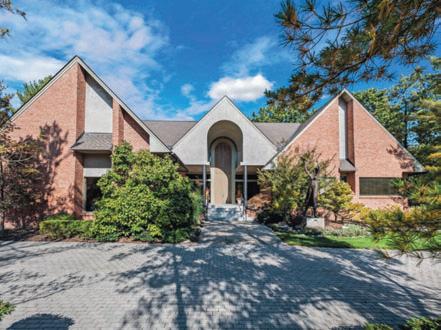











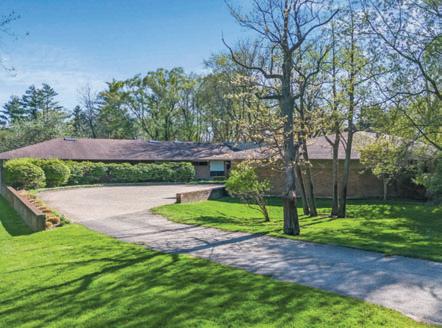







Oakland Confidential is a periodic column of political gossip/news, gathered both on and off-the-record by staff members at Downtown Newsmagazine. We welcome possible items for this column which can be emailed to: OaklandConfidential@DowntownPublications.com. All sources are kept strictly confidential. The gossip column can be viewed at OaklandConfidential.com where you can sign up to receive updates via email.
Cynthia is a powerful coach who can help you uncover and release the blocks that are holding you back in any area of your life. Whether you come prepared with a list of items or simply let Cynthia work her magic, you are sure to see incredible results.
Take the first step towards a










LOOKING FOR THE NEXT MOVE: According to an extremely reliable source, first-term Congressman John James (R-Shelby Township), who is running unopposed in the August primary for the 10th Congressional District – and then will face the winner of the six running in the Democratic primary, including Carl Marlinga, who James beat by only about 1,500 votes in 2022, is already strongly thinking about 2026, and running for the open governor’s seat. James, who unsuccessfully ran for U.S. Senate in 2018 and 2022, apparently has high aspirations – and a background of running his own show, having been president of James Group International and CEO of its subsidiary, Renaissance Global Logistics, both previously run by his father. Word is he and his family are tired of the D.C. jaunt, constantly having to raise money in order to get good committee assignments (which he has gotten), as well as being just one voice out of 435 rather than king of his own pony show. “The only chance he has for being governor is if he wins his race this year,” said one Republican politico. “You have to wonder, are the next two years just an audition for his next campaign?” Word is a lot of Republicans are saying that after six years and four campaigns, they’ve already OD’d on him.One Republican prognosticator pointed out that James obviously doesn’t understand what it takes to be the top dog in the state, where your wishes still must meet with approval of two legislative bodies, much like what James doesn’t like about Congress.
ON THE QT: First Lady Jill Biden, along with Second Gentleman Douglas Emhoff, did a three-day campaign visit to Michigan in mid-May, focused on the economy and reproductive rights. Biden capped off the visit with the keynote speakership on Saturday, May 18, at the Legacy Luncheon for the Michigan Women’s Democratic Caucus at Huntington Place. Word has leaked that in the early morning hours of Saturday, Biden, a known fitness devotee, allegedly made time for herself by quietly attending the 8 a.m. barre exercise class at Barre3 in Royal Oak. Barre classes are a mix of ballet, yoga and pilates, and are definitely not for novice exercisers. One attendee of the studio, in her late 30s, said the classes are not easy, and that the majority of those working it are in their 20s-40s. No word on how the 72-year-old Biden sweat it out – or if any secret service agents put on leggings and lululemon attire.
GRASSROOTS

GRAB: As the polls all over the country have shown this year, not all Republicans are the MAGA-faithful. Enter Principles First, a nationwide grassroots movement comprised of “principled Americans on the right and center-right who were concerned about the health of American democracy.” Begun in 2019 by Heath Mayo because he was concerned about the direction of the country, it has had summits in Washington D.C. every year since, with over 600 people attending to hear numerous speakers. Mayo said he wanted to “do something about the anti-democratic, authoritarian direction the (Republican) party was heading into, and it snowballed. Now we’re looking to go local.” After hearing a clamoring to bring it to the people, Principles First decided to hold a grassroots local pro-democracy dinner in metro Detroit on May 18, where over 100 people attended to hear Mayo, George Conway, podcast host at The Bulwark (and former husband of Kellyanne), TerryVirts, former Commander of the International Space Station, Tina Barton,

former Rochester Hills clerk and an election expert, and Chris Roosen, Northville committee member. According to a spokesperson, membership of Principles First is primarily made up of conservatives who were formerly members of the Republican Party, and there are some who were moderate Republicans and even some moderate Democrats. We are told that over 100 tickets had already been purchase a week ahead of the metro Detroit event.










MONEY, MONEY, MONEY: Now that it’s officially primary season, the money is beginning to flow like water, especially in Michigan’s hotlycontested open Senate race, which could become a free-for-all. Since Michigan’s Democrat Senator Debbie Stabenow announced in January 2023 she would retire from her long and esteemed political career at the end of this term, wannabes on both sides of the political spectrum have come out of the woodwork announcing runs – some actually are, while others found different campaigns to pursue. Wonks are putting their shekels on Congresswoman Elissa Slotkin (D-Lansing) ending up representing the Democrats, and former Congressman Mike Rogers (R-Brighton) as the Republican candidate. They both may end up battered and bruised in the process – but outside groups will be spending beaucoup buckeroos on the races. According to Politico, One Nation, a conservative political group which states their creed, “E pluribus unum. Out of many, one. This was the founders’ vision for America: a nation forged from different cultures, countries, creeds and classes – yet unified by a common commitment to freedom, democratic governance and guaranteed individual rights,” will be unloading $70 million in Michigan, Ohio, Pennsylvania, Wisconsin and Nevada in ad buys focused on the southern border and inflation, in an effort branded as the “Stop the Insanity” campaign. They will particularly focus almost $10 million here in Michigan before August’s primary. The Democrats have no intention of being left behind. The Democratic Senatorial Campaign Committee – of which Senator Gary Peters (D-Bloomfield Township) is chairing for a second time after a very successful outing in 2022, plans to spend $79 million on advertising to hold onto the Senate’s Democratic majority. In Michigan alone, the DSCC plans to spend $11 million to keep the Senate seat in Democratic hands. According to Politico, this year’s Senate battle could be the most expensive one ever.


ON MESSAGE: Ann Arbor Democrat Rep. Debbie Dingell is not a member of congress to just phone it in. She is always working hard for her constituents as well as all of the residents of Michigan. Having politicked hard to gain her colleagues’ votes, she is once again the new House Democratic Policy and Communications Committee chair – which is essentially the messaging chair for the Democratic caucus, tasked with developing messages and then gaining the support of caucus-wide messages to communicate where Democrats stand versus the Republican caucus. Dingell previously held this position in 2018 and 2020, but was term-limited out. To gain her fellow Democrats’ favor and remind them she was running, she passed out Michigan chocolates. “I think it’s important to have a battleground state voice at the table,” she told Punchbowl. Dingell is also the chair of the Heartland Caucus in Congress, which she launched in early 2023 with about 20 Democratic colleagues to underscore the contributions and electoral might of the Midwest, along with fellow Michigan congressmen Haley Stevens (D-Birmingham, Bloomfield, Oakland County), Rashida Tlaib (D-Dearborn, Detroit, Franklin, Southfield) and Shri Thanedar (D-Detroit). “The reality is the Heartland is the industrial and the agriculture core of the U.S.,” Dingell said, noting there is nothing “flyover” about the center of the United States.
THE GREAT UNKNOWN: Oakland County Republicans were beyond giddy in the summer of 2023 when the daughter of long-time county



executive and prosecutor L. Brooks Patterson, Mary Patterson Warner, filed to run for the top spot in Oakland government. But then came the Facebook post in February of this year when Brooks’ daughter announced that she would no longer be pursuing the job her father had held for over two and one-half decades, declaring that the “financial backing” it would take to win such a contest “simply isn’t there.” That’s after she had initially contributed $10,000 of her own money, matched by another $10,000 from the county GOP. All told, some $77,000 was raised by January of this year, yet seasoned veterans knew full well that it could take five-10 times that amount to capture the executive post that has been in the hands of the Democrat party since DaveCoulter was appointed county executive in 2019 after the death of L. Brooks Patterson. For the curious among us, Coulter has raised over a half million in campaign dollars this election cycle and had $402,000 on hand at the start of the year. Not to worry, said county GOP chair Vance Patrick, who claimed the county party would have an “extremely strong” slate when the April filing deadline arrived. Instead, taking the Patterson-Warner spot on the ballot is Nik (Nikola) Gjonaj of Clarkston, currently a commercial insurance company executive who has not held an elective office in the past and, as of this writing a month after filing for the election, has no presence on social media or the internet that we could find. One party insider said that Patterson-Warner’s problem was a lack of funding but blamed that on her advisors, saying she wasn’t “catching fire,” was given bad advice and wasted days after announcing early. As to Gjonaj, it was described by several party regulars as a “nice enough guy” but was “out of his element.” As for the November showdown, one GOP observer said the general election would be a “slam dunk for Coulter and the whole (Democrat dominated) board.” ‘Nuff said.

HISTORY REPEATED: One would think that candidates’ campaign committees would be on high alert following the bogus petition fiasco in 2020 that derailed five candidates in the last race for governor, along with three judicial candidates, but evidently not. First, there is the challenge to the validity of the signatures on the petitions to run for office turned in by Democrat Adam Hollier in the 13th District congressional contest that has gotten its fair share of ink and TV air time in recent weeks. U.S. House Representative Shri Thanedar. the Democrat now holding the district that includes a part of Detroit, the Grosse Pointes, Harper Woods, Hamtramck and some downriver locales, successfully challenged petitions turned in to get Hollier on the ballot. Thanedar has labeled the petition filing as an example of “blatant incompetence” with pages of the petitions that obviously contained supposed voter signatures that have a strong appearance of being created by the same person. At first, attorneys for Hollier claimed that Thanedar was just trying to suppress voters as Hollier, who is Black, tries to right what many consider to be a tragedy of a majority-Black city having no Black representation for the first time in 70 years. Now Hollier’s campaign is talking about turning the matter over to the county prosecutor, calling out petition circulator Londell Thomas for the bogus petitions. Ironically, Thomas’ name has also surfaced as the likely complainant behind a challenge to the petitions for Democrat Congresswoman Elissa Slotkin, who is running for the U.S. Senate. But the list of challenges of other petitions is also growing. Add to the list the petitions turned in by the campaign for Oakland Democrat Anil Kumar, currently on the board of Wayne State University, as he tries to get on the ballot to take on Republican 10th District Congressman John James, now in his first term. The petitions on behalf Rhonda Powell, another Democrat seeking to challenge James, have also been challenged. Then there is Oakland County Circuit Court candidate Nadine Hattan, whose petitions have been called into question. Meanwhile, the Michigan Democratic Party has called on election officials to investigate all of the petitions that have been turned in by the campaigns of Republican hopefuls for the U.S. Senate seat. All of the formal challenges will be heard on May 31 by the Michigan Board of State Canvassers.






F
ilmmaker John Rosman recently debuted his first full-length feature film, “New Life,” at The Birmingham 8, Powered by Emagine movie theater in downtown Birmingham. The independent cat-and-mouse horror-thriller film – with a major unexpected twist – was released in early May and has received critical acclaim and buzz at many film festivals and through online reviews. The film earned the Audience Choice Award for Horror films at the 2023 Heartland Film Festival.
Rosman grew up in Birmingham and graduated from Seaholm High School in 2005. He has fond memories of going to The Birmingham 8 to watch movies with his family and friends during his younger years, so it seemed natural to debut his first film in his hometown.
“It’s where I watched so many films for the first time, such as ‘Star Wars.' It is where I saw ‘Outbreak’ with my mom at way too young of an age, and this film later inspired my film,” he explained.
“It was really special to be there with so many people from my community and to have the level of support from my family, friends and from surprising places, like their friends and families,” he said.
Rosman said, “I really enjoyed my childhood in Birmingham. The metro Detroit Jewish community is very tightknit and like an extended family.”
He said he particularly appreciates “the cool DIY creative arts scene which started with music,” that he and his older brother and friends were able to build during their high school years “in basements and backyards” which fueled his future creativity.
“It was unique to be a part of this scene that was fertile ground to develop a creative idea and take it forward. I’ve applied so many of these lessons to my career,” he added.
After high school, Rosman moved west to attend the University of Oregon in Eugene to major in journalism. “I went to school for journalism but fell in love with documentary filmmaking, specifically editing,” he said.
Since college, his career has included working for NPR-affiliate Oregon Public Broadcasting and a variety of freelance video work. He was able to gain valuable experience on short form documentaries, music videos and creative storytelling which helped him with the directing and writing of his film, “New Life.”
“Making a feature film was always the end goal,” he noted.
The filmmaker now lives in Los Angeles but returned to picturesque Oregon to shoot his recent thriller. Distributed by Brainstorm Media, “New Life” is playing in select theaters and can be streamed on multiple digital platforms.
With the launch of his first feature film, Rosman said he enjoys his life in L.A. while continuing to work in the commercial video world and focusing on his next film project.
Rosman offered up this advice for aspiring filmmakers: “Just start making something. Everyone has a video camera on their phone – so start making films. The best thing you can do is to connect with one person you know who will help you and grow from there. Filmmaking is a team sport. With every project you should try to include more people and grow your crew.”
Story: Tracy Donohue Photo: TJ Michael
Photo: TJ Michael









his summer, if you find yourself on a sandy shore, take a shovel and start digging. Chances are you will hit water. This science experiment from our childhood is the simplest way to understand aquifers. When water infiltrates the ground, it can either be held in the surface soil and used by plants, evaporate, or trickle down into the earth through mineral deposits until it reaches a layer of impervious rock or clay that it cannot travel through – the saturated zone. This subterranean water reserve is known as groundwater, an estimated one third of which replenishes the country’s surface waters.
The U.S. Geological Survey (USGS), the nation’s key provider of mapping out of the nation’s geology and hydrology, describes aquifers as spongy, porous rock formations that store and transmit water through connected pores. Important for recharge, aquifers can feed hundreds of groundwater wells and streams.


here are two main classifications of aquifers. Bedrock till aquifers are made up of different rock types and are covered by till, a residual glacial mix of rocks, sand, silt and clay. A bedrock aquifer can yield as much as ten gallons of water per minute – enough for a small business or single-family home. The major water transport in bedrock till aquifers occurs in the fractures and faults of the underlying bedrock.
In Michigan, communities with public water supplies in bedrock aquifers include the cities of Lansing, Jackson, the campus of Michigan State University, Marshall, Vassar and Nahma Township. All are supplied by water coming from around 75,395 wells and have a capacity of 55 million gallons daily (mgd). In these areas of the state, the water flow rate can be as slow as eight to 10 gallons per minute. In contrast, a typical modern three-bedroom home requires 15-20 gallons per minute for great water pressure in the shower or for washing machines and dishwashers to operate properly.
A glacial aquifer, also called a stratified drift aquifer, is comprised of layered deposits of sand, gravel, silt and clay formed thousands of years ago by the receding glaciers. Glacial aquifers can provide millions of gallons of water daily wherever deep saturated deposits of porous sand and gravel are found. Glacial aquifers supply water through a public well system to cities and municipalities including Kalamazoo, Adrian, Cadillac, Claire, Hillsdale, Fenton and Kinross, coming from 207,407 wells and can produce around 61.5 million gallons daily (mgd).
For aquifers to remain productive, they must receive percolated water from rainfall or snowmelt. This is known as groundwater recharge.
Groundwater recharge is estimated by the USGS in inches per year. According to USGS studies dating to 1996, aquifers in southeast Michigan recharge on average between 2.1 and four inches per year. But there are some aquifers in the western part of the state that have been severely over-pumped. There, a hard layer of clay is preventing precipitation from rainwater and snow melt from reaching and replenishing the aquifer.
According to the USGS, groundwater supplies 38 percent of the drinking water in the United States and half of the global drinking water supply. Seventy percent of groundwater is used for agriculture. The USGS estimates groundwater replenishes 30 percent of the nation’s surface water flow. The volume of naturally cool groundwater that flows into a river or stream, called the baseflow, regulates ideal surface water temperatures in Michigan’s rivers to maintain fish populations. The cooler the water, the more oxygenated the stream to support aquatic life like trout, the state’s most prized gaming fish.
In addition to drawing water for our homes and farms, the naturally cool temperatures of groundwater also maintains the proper temperature of data centers that power the internet and propel forward industries such as energy, mining and manufacturing.
In March 2024, the Michigan environmental organization For the Love of Water (FLOW) released its annual Michigan groundwater report and raised the alarm about our dependency
on groundwater and how it is running dry in some regions of the nation. According to the report, 53 percent of the nation’s aquifers are losing water at significant rates. This can particularly be seen in the nation’s largest aquifer, the Ogallala, which stretches from the Dakotas to Texas and hydrates seven states.
Approximately 45 percent of Michigan’s population utilizes groundwater in their homes through public community systems and individual private wells. Almost 100 percent of rural and 17 percent of urban Michiganders rely on groundwater.
“Most of our streams in Michigan are fed by groundwater,” said Alan Steinman, the Allen and Helen Hunting research professor at the Annis Water Resources Institute at Grand Valley State University. “If you take away all the rain, in the middle of the summer, whatever baseflow you have under those dry conditions comes from groundwater.”
Just how much groundwater remains under our feet is a guessing game. It is hard to quantify because it lies deep out of sight. Some experts say that just as in any solid business plan, there needs to be consistent data about aquifers and groundwater to understand how much of a product there is and how much will be needed over time.
Steinman said to understand the underground aquifer composition, many may think of science fiction movies like Journey to the Center to the Earth, where explorers in rafts traversed vast underground rivers and cavernous lakes. But that’s not the case.
Steinman said it’s best to visualize Michigan’s Lower Peninsula aquifers as a set of big, asymmetric nesting bowls. The bowls –thicker and deeper in the middle of the state and thinning out at the rims near the Great Lakes and the Detroit River – are made of two geologic media of bedrock or glacial deposits which are thick at the center and thin out towards their rims.


teinman explained that the center of this system rests in Ingham County. This glacial aquifer is 125 feet deep and fed by the ancient receding glaciers of the last Ice Age. As you get to the edges of the state, the bowl thins out. And the thinner and sandier the layer of that glacial aquifer becomes, the more water it yields.
“If you are trying to pump water from among grains of sand, the particles are large so you can quickly yield a lot of water with a pump,” Steinman explained. “But if you are trying to get that water out of crevices of bedrock, it’s going to be a lot more difficult.”
Below the glacial aquifer is the Marshall Formation aquifer made of bedrock which rests beneath Ottawa and Oakland counties. The lowest bowl, centered around Midland, is comprised of porous sandstone and is the most productive bedrock aquifer in Michigan. It sits under much of the state’s lower peninsula. It has been developed for water supply by municipalities and industry in several areas, especially in the southern portion for agriculture. Here, the thin layers of glacial sediment make for easy drilling and water pumping.
The most acute example of an aquifer running dry in Michigan is in Ottawa County.
Yet the waters of this aquifer, which supplies communities of Ottawa County like Grand Rapids, have been declining for 30 years and is becoming infiltrated with salty deposits from the remnants of an ancient sea.
“If you are putting a lot of demand on this aquifer with a lot of wells, that glacial aquifer is not going to recharge fast enough to




Pamela

Stevenson, a global real estate advisor for Premier
Sotheby’s International Realty’s Bonita Springs office, brings over 35 years of experience to her role. Raised in Detroit, Michigan, she holds degrees from local institutions including the University of Michigan and Loyola University. Additionally, she spent a year in Lawrence Tech’s business program. Choosing the Florida lifestyle over Michigan’s weather, Pam offers a unique blend of expertise, with a background in nursing, ministry and residential construction. Her dedication to education and her customers, rooted in empathy and integrity, sets her apart. Pam’s journey as a cancer survivor speaks volumes about her resilience, adding depth to her diverse experiences and making her a trusted ally in real estate transactions. Beyond work, she finds joy in nature, travel, and time with family, embodying a passion for life and genuine care for others.


$2,350,000*
Augusta Creek Court | Bonita Springs, Florida
meet the demand,” Steinman said. “Therefore, you must start digging wells that are deeper and penetrating that bedrock formation.”
Below the Marshall Formation lies the dried-up remnants of an ancient saltwater ocean. It’s why Michigan is blessed with the largest reserves of rock salt in the country to treat our winter roads. The curse – drill too deeply for water, and those chloride crystals are in danger of adding salt to the fresh groundwater.
“If you are a big municipal water supplier to residents, there are ways, however expensive, to filter out that salinization,” Steinman said. “But if you are a farmer using that water for your crops, if the chloride is high enough, you are going to burn out your crops, especially tender crops like the corn, soy and blueberries we grow in this county. So a new problem is emerging as a double whammy. One is the quantity of the water supply –and the second is the water quality.”
Another area that needs more research is understanding how groundwater interacts with surface waters.
Professor Anthony Kendall is the director of MSU’s Hydrogeology Lab. Its researchers work to understand how human activity impacts the water cycle and includes examining in-state aquifers critical to human and ecological health. Lab researchers recently examined the headwaters of the Au Sable and Manistee River basins in central Michigan to understand temperature, stream flow and groundwater recharge rates by creating a detailed network of stream gaging. Researchers hope that the data will serve as a model throughout the state for land use and fishery management.
Kendall said the interaction between ground and surface waters needs more attention and research. Though groundwater is out of sight, Kendall said all water sources are connected.
“Think of the surface waters we see in our lakes, rivers and streams as a direct expression of what is going on in our aquifers,” Kendall explained. “If the Great Lakes waters are high, the same can be said for the levels of our aquifers. Naturally cool groundwater flows into most of Michigan’s lakes and rivers. Most of the lakes that are populated by residential communities have set legal limits on lake levels. These are controlled and managed by an appointed drain commissioner who may not have expert technical training on lake level management.”
“Most of our lake communities are on septic systems,” Kendall said. “When we design these systems, they are meant to remove pathogens and kill bad viruses and other microbes. But they only remove about 30 percent of the phosphorus from the environment and the rest of it leaches out into our groundwater which feeds into our lakes. So, we are putting waste into the beautiful lakes we all enjoy.”
With that said, he understands the exorbitant cost of replacing a septic with a sewer line, which can run into the tens of thousands of dollars. “I’m not saying it’s an easy solution, but lakeside communities must put a bigger focus on properly maintained septic systems. That means getting it thoroughly pumped out annually or every three years, depending on the size of your household.”
Other things one can do to maintain a healthy lake, Kendall instructed, are to manage grass cuttings from floating into the lake, reduce or eliminate lawn fertilizers, and plant vegetative buffers between one’s land and the lakeshore.
“We have known for a long time that there is too much phosphorus getting into our lakes. One of the major victories of the Clean Water Act was that it forced wastewater treatment facilities to modify their operations to remove nitrogen and phosphorus from the water. Beginning in the 1980s, this reduced harmful algal blooms in the Great Lakes and the Saginaw Bay,” Kendall said.
For nearly 25 years, researchers, geologists and state environmental officials have urged state government officials to pay more attention to protecting our aquifers – what some refer to as the sixth Great Lake.
Some geologists interviewed said that Michigan has the most private and municipal wells in the country while also having the poorest documentation of where those wells are in terms of underground geologic formations, their output capacity and their proximity to potential pollutants.


Kendall said Michigan is experiencing new, strange weather patterns because of climate change.
There is less snow and this snow melts more rapidly than in previous decades. There are also wetter springs and drier summers with less frequent yet more intense rainfall patterns.
“What worked in the past in terms of lake level management is not going to work in the future,” Kendall said. “My lab is attempting to create the ability to stay on top of these changing conditions. We need to combine more accurate mapping with data to create a picture of the entire landscape. Ideally, we need more water gaging measurements to take place every month. Overall, our groundwater systems have been under-monitored and therefore poorly understood.”
Kendall emphasized that one way to protect groundwater can be as simple as properly maintaining one’s septic system. This has become a big focus of his work. Woefully, Kendall said that Michigan is the last state in the nation to create regulations on septic tank systems. For example, only 11 counties in Michigan require inspecting a septic system as part of a home sale.
They declare this lack of data hampers all sorts of efforts: from projecting just how much underground water reserves there are to support dependent populations decades into the future to understanding groundwater flow rates around aggregate mining sites.
In 2000, the state, in collaboration with the USGS, created an interactive digital mapping system of the state’s existing wells called Wellogic. New and existing homeowners can call their address, municipality or county to locate the nearest drilled well and its status to estimate the availability of groundwater to drill a new well. But while water well contractors may have been submitting information digitally since 2000, experts say the data retroactively entered is a piecemeal of paper maps created decades ago that have been stored away in dusty filing cabinets of individual municipalities.
Officials at the Michigan Department of the Environment, Great Lakes and Energy (EGLE) will install a well water gage in areas where contaminants are suspected.
However, researchers are critical of this reactive and not proactive approach. They claim that the state lacks gages and data collection points in unremarkable areas to understand how groundwater levels fluctuate over time. A lack of consistency has led to groundwater systems being poorly understood and managed compared to the study of surface water systems.
In August 2003, the state legislature enacted Public Act




































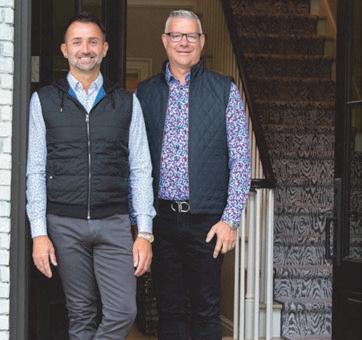
(PA)148, which required Michigan to create and maintain a groundwater map and did so with a collaborative project between the Institute of Water Resources (IWR) at Michigan State University (MSU) and state environmental regulators. The state viewed this as the most efficient way to inventory the quality and the conditions of the subterranean waters and solve future groundwater disputes and conflicts that may lie ahead.
Since 2005, the state has also managed a database of aquifer maps using the Geographic Information System (GIS) developed to express the uncertainty or statistical significance of the data. The data was intended to display seasonal and long-term variability in groundwater levels.
The first law protecting the over-pumping of aquifers in Michigan went into effect with the 2008 passage of the Great Lakes Water Compact, according to Nicholas Schroeck, associate professor of law at the University of Detroit – Mercy. This marked the creation of Michigan’s Water Withdrawal Assessment Program, which was designed to prevent severe damage to lakes and streams because of siphoning off of large amounts of water from surface and groundwater sources.
According to EGLE, the Water Withdrawal Assessment Program is intended for use before installing a new or increased large quantity withdrawal to determine the potential impact on nearby water resources. Use of the Water Withdrawal Assessment Tool is required before installation of any new or increased large quantity withdrawal.
In accordance with Part 327 of the state’s Natural Resources Environmental Protection Act, a new or increased large quantity withdrawal over 100,000 gallons per day up to two million gallons per day must be authorized by the state with an annual $200 permit. Very large withdrawals of two million gallons per day, if permitted, are subject to a permit application fee of $2,000.
“Before this was codified into state law, there was not a lot of regulation for groundwater pumping in the state of Michigan,” explained Schroeck. “Typically, the way property law works, if you own a piece of property in the state, the groundwater that flows below is part of your ownership. That’s the common law rule, and we’ve been practicing this since we were under the rule of the British.”
He continued: “That was the first real permitting or licensing that we had for groundwater withdrawals in Michigan. Here, agriculture is one of the biggest users of groundwater in the state. But before 2008, we didn’t have great data on how much groundwater (for agriculture) was being used.”


chroeck said that EGLE grants permits for the majority of the applicants, be they farmers or businesses, unless they are applying to withdraw groundwater from an aquifer where there are known stressors.
“There are some limitations on groundwater pumping in the western part of the state towards Grand Rapids, and there has also been stress put on aquifers primarily from agricultural use,” Shoreck said.
When we think of water depletion of aquifers, the parched Southwest or the Great Plains come to mind. An area of seven states stretching from the Dakotas and Wyoming down to Texas is hydrated by the shrinking Ogallala Aquifer. According to Scientific American, the Ogallala Aquifer is being depleted at an annual volume equivalent to 18 Colorado Rivers.
Ottawa County, a fast-growing region along the shores of Lake Michigan, is at risk of its aquifer running dry in the coming decades.
According to the U.S. Census, the population in the county from 1960-2040 is expected to quadruple. Ottawa County commissioned Michigan State University in 2012 to investigate groundwater issues raised by locals, well drillers and farmers.
The main reason for the aquifer’s depletion is a geologic one. As Steinman at the Annis Water Resources Institute at Grand Valley State Universitypreviously explained, part of the geologic makeup of Ottawa County is a thick layer of glacial clay which drastically slows rainwater or snowmelt from replenishing the aquifer.


teinman served on the executive committee for the 2019 Ottawa County Groundwater Sustainability Initiative, which mapped out a multi-pronged education, outreach, and conservation plan for the community to teach about possible solutions to conserve and preserve its water supply. Steinman was the lead author of Addressing Groundwater Challenges In Michigan As A Template For The Great Lakes, published in the 2022 Journal of Sustainability. The study was a compilation of research from leading state academics, researchers, and environmental organizations who gave caution about the critical but understudied and underfunded nature of groundwater as a natural resource.
With a focus on the plight of Ottawa County, the study stated that over the last 40 years, because of continued groundwater withdrawals from the Marshall Aquifer, water levels in Ottawa County dropped more than 13 meters, with an additional sixmeter drop likely within the next 15 years if withdrawal rates continue at the current rate.
In those areas where freshwater recharge can infiltrate the bedrock aquifer system, subsurface drainage systems, draining excess water away from agricultural areas and into drainage ditches, may limit the aquifer recharge.
The study recommends an enhancement of the capture and reuse of water runoff to divert it back into the aquifer, updating drainage systems and updating statewide maps of groundwater recharge potential.
In comparison, the waters of Oakland County’s aquifers are plentiful but not without peril.
In the early 2000s, Oakland County commissioned the USGS to conduct a mapping survey of the geological conditions of the county’s underwater reserves. The study examined how land cover changes between 1970-2003 impacted the county’s topography and stream flow.
In 1972, about 850,000 people lived in Oakland County and used about 100 million gallons of water per day. In 2000, about 1.2 million people lived in Oakland County and used 168 million gallons of water per day. About 75 percent of that water was supplied from the Great Lakes by the Detroit Water and Sewerage Department (DWSD), now renamed the Great Lakes Water Authority (GLWA).
By 2000, 240,000 Oakland County residents relied on domestic wells which pumped out 21 million gallons daily.Over the next 20 years, the county’s population is expected to grow by an additional 200,000, mainly in the northern and western parts of the county that use groundwater, to the tune of an extra 20 million gallons daily. Municipalities in this area, like Highland Township, White Lake, Waterford, Milford, and other areas in the county, rely on groundwater for their water supply.
When residents pump water from the aquifers, that wastewater is sent not back to the aquifer but to a wastewater treatment














plant and then back to our surface waters. While a household using a well and a septic system returns approximately 90 percent of the water pumped from the well back into the ground, residents connected to wastewater treatment plants represent a 100 percent loss of water to the aquifer system, said the report.
In 2000, public groundwater suppliers delivered approximately 22.87 million gallons daily to 169,000 residents, and an additional 240,000 residents used private wells.
Despite the population growth, surface and groundwater quantity was not negatively impacted. There were few areas in the county supplied by a mixture of ground and piped-in water, and there were steadily decreasing levels of water in some streams between 1970 and 2003. Compared to a study from 1972, the quality of the water by the early 2000s had improved with decreased levels of nitrogen, phosphorus and sulfate.
future, Lusch cautioned. As time marches on, Michigan will endure inconsistent rainfall. Extended periods of dry, hot weather will be punctuated with short intense bouts of heavy rainfall. And like a dry sponge, arid ground cannot quickly soak up these downfalls and direct water back to the aquifers. This is especially true with Oakland County’s heavy clay soils and the fact that urbanization has covered up much of the land with impervious surfaces, said Lusch.


Howard Reeves, a USGS research hydrologist and the watershed modeling team, explained that with Oakland County’s varying topography, finding the sweet spot for groundwater takes lots of skill.
“All of Oakland County rests on a mantle layer of glacially deposited material, so the productivity of an aquifer to provide drinking water varies widely,” explained Reeves. Reviewing the Oakland County report, Reeves said the glacial mantle between the earth’s surface and the aquifer can range from hundreds of feet to only a few feet.
“Most wells in Oakland County are located on this glacial area which is comprised of sand, silt and clay,” explained Reeves. “The most productive wells are in areas where there is lots of gravel, which allows for more water to be captured. Home buyers building new construction can take for granted that there is access to water. They think it is easily accessible and they can drop a well anywhere and reach water. Though our topography is not like the hard granite of New England, where drillers must work extra hard to access water, drilling for water here does take skill. Fortunately, our state’s drillers know what they are doing.”
Reeves said Wellogic provides new and existing homeowners a good understanding of where neighbors found water and how far below they had to drill to reach it. Still, the glacial mantle makes conditions very variable.
“In some instances, you have a neighbor with a 120-foot well and they have great quality water flow and quality, and then a few plots down they had to drill down to the top of the bedrock layer and their water may not taste as good,” he noted.
MSU Professor Emeritus David Lusch, one of the foremost experts on aquifers and aquifer mapping in the state, said the 2005 study disproved some misconceptions that aquifers in Oakland County could be running low. With climate change, Michigan is experiencing wetter springs and summers. Lusch said the real-time online map created by the USGS on wells throughout the state indicated that this spring the 33 wells monitored by the USGS in the county are showing normal or above aquifer levels.
“One might think that with the persistent urbanization of Oakland County over the last 30 years, there would be a noticeable depletion of the aquifers and it would be quite noticeable,” Lusch said. “But the data just doesn’t support that. And when we try to figure out how this can be – that we have more users drawing from the same water resource – we don’t see a declining signal in water levels.”
That is not to say that there will not be supply shortages in the
Lusch continued: “When our heavy soil and mostly impervious urban infrastructure encounters these heavy rain events, the soil just cannot absorb all that water. Our urban infrastructure blocks the water from taking its natural path, which is sinking back into the aquifers through layers of the earth. So even though we may be seeing more rain, instead of generating aquifer recharge, we end up with local flooding. If you have forested land or open green spaces, it sends the water back into the aquifers.”
Lusch said he would recommend the state legislature pay closer attention to aquifers and put more money in the budget to pay for further data collection and monitoring by the USGS. “That’s another part of the ignorance factor in not appropriately providing funding for that because the USGS doesn’t do this out of the goodness of their hearts, either. They have to have a cooperative financial arrangement with the state of Michigan.”
Lusch said the cost of a comprehensive study, such as the kind that Oakland County commissioned the USGS to do back in 2005, costs between $30-40,000.
“The USGS created the (2005) study at the invitation of Oakland County,” mused Lusch. “They do not do these studies out of the goodness of their hearts, and it does not help that the USGS has also had their funding cut at the federal level.”
In his many talks, Lusch describes Oakland County’s inland lakes as groundwater “without a top on it.”
“If an owner of a lake home can think of it that way, it might make them feel more connected and responsible for that water that rests right outside their doorstep,” said Lusch. “In Oakland County, tapping into the groundwater happened quite rapidly, and this is why we have so many inland lakes. Homeowners must ask themselves: When was the last time they took care of their septic system? When did they last pay attention to how much fertilizer and chemicals they applied to their lawn? All those chemicals will leach right into the waters of your lake.”


Mark Hansell, Oakland County’s chief of Environmental Health Services said that those in Oakland County who receive their water from municipal wells have their water tested and treated for harmful bacteria and contaminants just as customers who receive water from the Great Lakes Water Authority. Hansell said that homeowners on private wells are responsible for testing their water, and guidelines and costs for well inspection can be found on the Oakland County Health and Human Services well program website.
The Michigan Department of Health and Human Services (MDHHS) recommends routine testing for coliform bacteria and E. coli or nitrate annually and testing for arsenic, copper and lead every three to five years. Extra tests for the above should occur any time a household member is pregnant, if there are infants and young children at home, flooding near the well, or changes in the water’s taste, color or odor.
New residential and commercial construction in Oakland County not served by the Great Lakes Water Authority must apply


More real estate than any other publication in all of Oakland County, and for a good reason.
Quality editorial content for a loyal readership that appreciates a strong news product, so your ad gets read.
Make sure your home is listed in the right place.



for a permit. Before the county permits a new well, Hansell said the county must assure there are no areas of contamination on the land that would pose a risk to the groundwater and human health based on data they glean from reports from EGLE as well as the 2005 USGS study for Oakland County. Any permitted wells must be bored by a state-certified well driller under the Weld Construction Code in the state’s Code of Public Health. During a well’s drilling, the MDHHS will make a few visits to ensure all operations and design of the well are up to code.
“There is a lot of due diligence before we even visit a site applying for a well permit,” Hansell explained. “Once we review existing records and mapping of the area, we’ll visit the site to look for other possible sources of contamination. If there is a septic system in your yard or a neighbor’s yard, we want to make sure it is being properly maintained to protect that well, the aquifer, and ultimately, your health.”


Lusch said that with all the work and studies he has facilitated over the decades, what is most important is that government officials become more educated about managing groundwater resources.
“In my 30 years of research, I find this area is woefully lacking. Most are poorly informed or ignorant about how to protect groundwater,” he noted.
The Michigan state legislature approved in its 2023-2024 budget more money for the study of aquifers. EGLE was allocated in the budget a one-time infusion of $23.8 million to hire two full-time employees who will manage a new research project called the Groundwater Data Collection initiative.
EGLE officials defer to the USGS for having more comprehensive data resources on the state’s groundwater supplies and conditions. EGLE spokesperson Hugh McDiarmid said that currently, the state does not perform comprehensive mapping and monitoring of specific aquifers unless there is evidence of contamination. The Michigan Geological Survey is at the beginning stages of mapping programs for aquifers with EGLE organizing the data, but this project will not bear any fruit for another two years, McDiarmid said.
Despite some late advances, John Yellich, director of the Michigan Geological Survey based at Western Michigan University, said that geologically speaking, Michigan is the most poorly mapped state in the country. To improve this, in the last two state budget cycles, the Michigan Geological Survey received annual funding, as well as a grant through the Department of Natural Resources, for five years at $1 million per year to map aggregates in Michigan. Yellich said all this mapping ties back to understanding our aquifers.
“I have had decades of experience working as a geologist,” Yellich said. “I have worked on groundwater cleanup and hazardous waste cleanup sites in 20 states. When I took this position in 2013, within three months I concluded that Michigan was the most disappointing state I have ever worked in in terms of not having any data on its groundwater.”
Yellich criticized the lack of training the state’s drillers had in properly and consistently entering data into the Water Withdrawal Assessment Tool and Wellogic and began a training program to improve accuracy.
Yellich said it is important to properly map Michigan’s underground terrain in terms of where our legacy pollution lies – elements like coal ash, aggregate mining, industrial sites and forever chemical deposits –about where stores of underground water reserves exist.
“Back in the 1970s and 1980s, Michigan did not think about where we were allowing industry and manufacturing to operate in terms of how close they were to groundwater sources,” Yellich said. “These legacy industries still impact our shallow aquifers. That is why our mapping program is important. The maps will show the locations of shallow sand and gravel deposits. That way, cities can better determine where to allow industries to operate. This is because industries carry the potential for spills of contaminants into our groundwater. This is a mapping system that is only now being developed. It could have been useful decades ago.”






























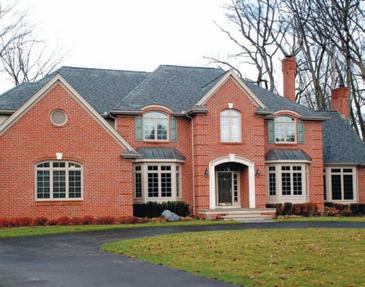










Among the last surviving members of the Tuskegee Airmen, Lt. Col. Harry T. Stewart Jr. – who lives in Bloomfield Township – has a big celebration ahead when he turns 100 on July 4.
Stewart recently shared his inspirational story with students at Bloomfield Hills High School, chronicled in a book he cowrote with Philip Handleman called “Soaring to Glory: A Tuskegee Airmen’s Firsthand Account of World War II.” The book details the emotions and struggles of the first African-American pilots in the U.S. Army Air Corps through Stewart and his personal story.
His fondness for flying came early in life. “Ever since I was a small child, I had a fascination with airplanes. From the late 1920s through the 1930s, I especially wanted to be a pilot,” he said.
“My parents told me, when I was a year or two old, they put me in a crib out on the lawn. Planes would fly over and I would get very excited,” recalled Stewart, who was born in Newport News, Virginia, and moved to Queens, New York, shortly after.
“As a teenager, I used to walk over to North Beach Airport (now LaGuardia) and watch the planes take off and land. I had an early interest in aviation.”
His wish would soon be granted. “Chances are, had World War II not come about, I would not have had that opportunity, but World War II did come along and they needed pilots,” Stewart said. “I was fortunate enough to pass the mental and physical examinations.”
Stewart joined the U.S. Army Air Corps and received his wings when he was 19. During World War II, he flew 43 combat missions as a fighter pilot in Europe. “I was stationed in Italy, but the missions took me to various targets, such as Germany, Austria and parts of France,” he said.
For one mission, Stewart received a Distinguished Flying Cross (DFC) for destroying three German aircraft. He is one of only four Tuskegee Airmen to have earned three aerial victories in a single day of combat.
After seven years in the Army Air Corps, Stewart later transitioned to the Air Force and remained in the service after the war until he was discharged. His memorable moments include when he and his Tuskegee Airmen teammates won the first trophy in the propeller class during the “Top Gun” fighter gunnery competition near Las Vegas, the Air Force equivalent of the Navy’s “Top Gun” school that would come later.
After the service, Stewart earned a degree in mechanical engineering from New York University. “I followed that route until retirement,” he said. His last position was for American Natural Resources Co. in Detroit, and he previously worked for General Foods and Bechtel.
After he retired, Stewart would go on to do many public speaking engagements in the U.S. and abroad. He also continued to pursue his childhood dream.
“Up until COVID came along, I was doing quite a bit of civilian flying from Coleman A. Young Airport, giving flights to youngsters in the Detroit area trying to orient them so hopefully they would find an opportunity in the commercial aviation industry as a pilot or an engineer,” he said.
Today, the retired Air Force pilot still stays active. “I just enjoy myself, reading with a bit of traveling,” said Stewart. “My health is good and I’m looking forward to my 100th birthday.”
Story: Jeanine Matlow
Mackenzie O'Brien
Photo:
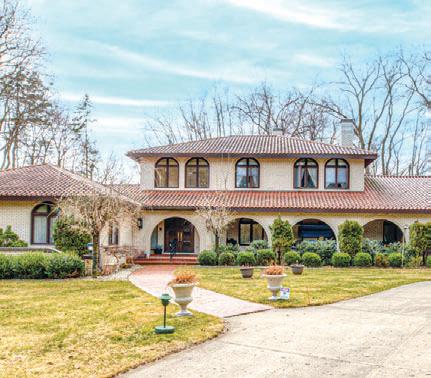

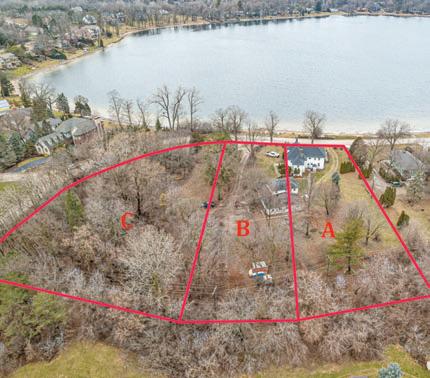






Future plans for the future Birmingham senior and community center was the hot topic of the Monday, May 20, city commission meeting during which commissioners reviewed the community survey and feasibility study created by the Norr firm.
Norr was selected by the city commission back in February to perform a building assessment and conceptual designs for the renovation or expansion of the former YMCA building, located at 400 E. Lincoln, which was purchased by the city almost a year ago as a new home for Next Birmingham.
Brian Colburn and Claudia Padilla of Norr presented the findings of the feasibility study and community survey to the commission during the commission meeting. According to the two, their findings show that respondents from the community said they are generally looking for a more modernized and accessible building, an open gathering space for the community and enough space to support the activities that the YMCA and Next offer.
In terms of the building itself, Padilla explained to the commission that the report, using information provided from both the YMCA and Next about the amount of space they would like for the building, said that the current facility would need to be expanded by roughly 11,000 square feet to accommodate what Next and YMCA would like to offer. Next and YMCA officials have met and reduced some of the space requirements by viewing program consolidation and space sharing, city officials were told.

Several commissioners commented on the report saying that they were concerned about the lack of direction provided in the report. Many said there was no indication on whether the building should be renovated or torn down for a completely new build, and there was no cost analysis of any options.
City manager Jana Ecker told commissioners before hearing the report that the commission had a lot of decisions to make in terms of the scope of the project, including the budget and funding for the facility, be it a renovation or new build, and the size of the building, among other items.
“I don’t think we have the tools or information to provide the answers
Erika Bassett, who has been the Birmingham Shopping District's (BSD) marketing and public relations specialist for the last four years, has been promoted to executive director of the BSD, effective Monday, April 29.
Bassett was one of four finalists for the position. Interviews of the finalists were conducted by members of various BSD committees after vetting by the city of Birmingham's human resources department, with the BSD's executive board announcing the final decision at their monthly meeting on Thursday, May 2. The actual hiring of the BSD director falls to the city manager.
Bassett, a Birmingham resident, began with the BSD as the marketing and public relations specialist in October 2020, developing and managing BSD communications and marketing strategy, campaigns, working to budget and create new programs, extensive media coverage, and increased awareness and traffic to downtown businesses and events, manage the website and social media. She has also worked with BSD businesses and retailers as well as property owners, city department heads, staff and stakeholders and stepped in as deputy director of the BSD. She has also been the owner and vice president of Bassett Properties since 2007, worked as a global marketing and communications manager, and worked in marketing and advertising strategy at Campbell-Ewald Advertising.
The executive director position had been vacant since early February after what is being termed a “separation of employment” for Cristina Sheppard-Decius, who had held the position since she was approved by the BSD board on September 1 of 2022. City officials and BSD governing board members have not offered reasons for the separation, although unconfirmed reports suggest that there were conflicts with SheppardDecius and both city and BSD officials.
Assistant city manager Melissa Fairbairn was named as interim executive director while the search was underway for an executive director replacement.
The BSD is funded through a special assessment on all commercial, non-residential property in areas of downtown and other business districts of Birmingham. The executive director works with merchants, business owners, retailers, landlords and commercial real estate brokers.
that [Ecker is] looking for,” said commissioner Therese Longe. Commissioners went back and forth stating the items that needed to be ironed out before feeling comfortable with accepting the report and moving forward in the process.
Mayor Elaine McLain and other commissioners alluded to the fact that having an owner’s representative to help with the process, which was also on the agenda after the report presentation, would help the commission solidify these decisions.
Ultimately, the commission did not move forward with accepting the feasibility study created by Norr, citing all of the questions they said had been left unanswered and the fact that they were not prepared to accept the report’s findings. Commissioners suggested that the report should be the topic of a future meeting.
After a contentious interview process, the Birmingham city commission has selected Kramer Management Group as the owner’s representative for the development of the city's community and senior center during the Monday, May 20, commission meeting.
The city purchased the former YMCA building last June for $2 million, with a $500,000 contribution from NEXT, and has been working with NEXT, the YMCA, and the Ad Hoc Senior and Recreation Services Committee to develop a plan for the future of the building in order to provide the best use for Birmingham residents.
Earlier in the same meeting,
commissioners reviewed a report created by the Norr firm that contained a community survey on what Birmingham residents would like to see out of the center and a feasibility study of the existing building.
During that discussion, several commissioners pointed out that important details were missing from the plan. The city has not established a defined budget, funding or scope for the project, which is where the selection of an owner’s representative could relieve some pressure.
An owner’s representative would help manage the city’s efforts going forward with the project. The city and the Ad Hoc Senior and Recreation Services Committee put together a request for proposals (RFP) that was released on April 18, 2024, with a deadline of May 10.
According to city manager Jana Ecker, the ad hoc committee, Ecker, both assistant city managers, building official, planning director, department of public services director, finance director and building superintendent reviewed the proposals and brought forward two candidates to be interviewed by the commission.
The first of the candidates was Edge Design Associates, a firm based in Ann Arbor, that has owner’s representative experience with projects including Baker College’s Royal Oak Campus and the Malletts Creek Branch of the Ann Arbor Library.
The second candidate brought to the commission was Kramer Management Group based out of Lansing. Kramer Management Group has worked on several projects throughout the state, including several corporate facilities for McLaren Healthcare, Michigan’s State Senate offices and the Ingham County Justice Complex.
After hearing presentations from both groups, multiple commissioners said they were impressed with the experience from Kramer Management Group.
“We seek a spark to get back on track, to do what we promised to the seniors, the community members, everyone here, all of our stakeholders,” said mayor Elaine McLain. “You hear how passionate we are about it so thank you for bringing the spark.”
Commissioners voted unanimously to award the owner’s representative contract to Kramer Management Group.

Birmingham’s security camera system is set to get a major overhaul after city commissioners approved a contract with D/A Central to replace the security camera system around city hall and downtown Birmingham and add security cameras to the city’s parking system during their Monday, May 22 meeting.
The Birmingham police department, in coordination with the parking department, has budgeted for a project that will replace the city’s entire security camera system with new cameras and add more cameras in new locations. According to police chief Scott Grewe, the system was first installed in 2001 after the September 11th attacks and is in desperate need of updating.
Other commissioners felt that D/A Central’s 10-year warranty, experience with municipalities and overall lower cost while still providing the product the police department and parking department are seeking outweighed Security Designs’ systems.
Commissioners voted 6-1 to approve the contract with D/A Central, with Longe voting against the motion.
Bloomfield Township trustees unanimously approved placing a millage renewal for public safety on the August 6 primary ballot at their meeting on Wednesday, April 24, for an expiring public safety millage of .6474 mills.
Whether you’re looking for a construction mortgage or a vacant lot loan, you can count on us for competitive products and experienced, trusted support. Choose from fixed- or adjustable-rate construction loans. Plus, get financing that includes your construction and permanent loans all in one closing — with one set of fees.
“The cameras are at the end of their life,” Grewe said, noting that some of the cameras aren’t even functional. Grewe said that the police department, along with the parking department, have been working to budget for the upgrading of the camera system. The cost for the project was budgeted for the next fiscal year at $890,000.
Grewe, along with the city’s parking director Aaron Ford, developed a request for proposals (RFP) in March, asking companies to submit proposals for an overhaul of the camera system that would replace 46 existing surveillance cameras around the city and add 57 new cameras to the city’s parking system.

The city received proposals from six companies and narrowed the proposals down to five based on responses to the city’s request. Commissioners were asked to interview two companies, D/A Central and Security Designs, that Grewe, Ford, IT manager Eric Brunk, services captain Greg Wald and officer Gina Moody had chosen from the remaining five companies.
Included in the meeting packet, Security Designs and D/A Central both offered the Motorola brand products that Grewe and city staff feel would best support the city. Grewe said Motorola allows for the integration of the current police radios, Birmingham school’s camera systems and independent business camera systems.
Security Designs’ proposal, including a 10 percent contingency that the city adds for unexpected costs, came to a total of $659,379, whereas D/A Central’s proposal came to a total of $629,585.
After listening to the presentations given by both companies, commissioner Therese Longe pointed out that there was a discrepancy between the quality of the cameras included by Security Designs and D/A Cameras.
“It would seem like Security Designs' are going to have better resolution over the rest of the city,” Longe said.
Township treasurer Michael Schostak explained Bloomfield Township has three millages for public safety, and the one expiring in 2025 is the smallest of three, representing 10 percent of the total tax revenue captured for public safety. He assured the board and residents there would be no increase in taxes whatsoever; in fact, when first levied, the millage was 1.0 mills, but due to Headlee rollbacks, it is now at .6474 mills, and the new millage renewal requests an authorization of that levy. The township continues to require dedicated taxes for police, fire and public safety protection.
The last collection of the current public safety millage is December 2025, with the first collection of the new millage in December 2026. The millage is for 10 years, and it would genrate $4 million in its first year.
“We are asking for the renewal now because we want to get ahead of it and put it on a regularly scheduled election rather than hold a special election,” Schostak explained. “The renewal is at the rolled back rate.”
The language for the approved ballot language reads as:
Shall the Charter Township of Bloomfield renew and continue to levy the voter authorized public safety tax levy of .6474 mills, due to expire in 2026, authorizing a levy of $.6474 per $1,000 of taxable value to finance the Charter Township of Bloomfield’s continued providing of fire, police and public safety protection, for a period of 10 years, with the renewed millage to be levied commencing in December 2026. This renewal public safety millage will be subject to applicable statutory and constitutional tax limitation provisions at the time of the levy and will not exceed the above stated rate. It is estimated that this proposal would result in the authorization to collect $4,000,000 in the first year if approved and fully levied. Shall this proposal be adopted?

The Bloomfield Township Board of Trustees voted approval of 11 lake ordinances at their meeting on Monday, May 13.
Voting for the ordinances started with Ordinance 679, the purpose of which was to repeal the existing and unenforceable local watercraft controls on various lakes within Bloomfield Township. Those ordinances, to prohibit all motorized watercraft, had been in place for decades, but recently it was discovered they had obtained no actual approval from the Department of Natural Resources (DNR), making them obsolete.
The other 10 ordinances passed each amended Chapter 40, Waterways, Division 1, and added a new section 40-22, to provide a slowno wake speed for vessels on each on the lakes, including Wing Lake, Gilbert Lake, Chalmers Lake, Wabeek Lake, Orange Lake, Sodon Lake, Forest Lake, Lower Long Lake, Meadow Lake,and Island Lake.
Having the lakes be “slow-no wake speed” means that the wake or wash created by a vessel would have to be minimal, only caused by a very slow speed at which the vessel was being driven.
While the ordinances have passed, there is even more work for the township to get done now, all of which they are hoping to complete by the end of May, and on track to do so according to township clerk Martin Brook.
In order for the ordinances to become effective, the board will have to publish the ordinances after adoptions, which was completed at their May 13 meeting, and have already provided notice to DNR –another step in the process.
Next, they will have to post the signs around the 10 lakes for the ordinances to be effective. The signs have already been ordered and approved by the DNR.
If the township is successful in its planned appeal to the DNR, they will have to replace the signs with new ones, indicating an ordinance requirement of no motorboats on the lakes.
This all comes after some lengthy board meetings, including the meeting on April 8, where it was shared that the DNR had determined that local watercraft control was not warranted, permitting only slow no-

determined that the township's 10 lakes can have slow no-wake lake ordinances, but not no motorboats, as has been followed by the lakes since 1970.
With improvements to Booth Park in Birmingham in the works, the city is seeking funding from the Michigan Natural Resources Trust Fund administered through the Michigan Department of Natural Resources (DNR) after authorizing the grant application during the Monday, May 6, city commission meeting.
While the grant application was initially authorized during the March 18 city commission meeting as a consent agenda item, it was brought back to the city commission as an agenda item to give the public ample opportunity to provide feedback.
According to Natural Resources Trust Fund website, the program’s objective is to offer funding for projects that provide natural resource protection and outdoor recreation. Applications are evaluated on natural resource access and conservation, proximity to population clusters, the applicant’s committed matching funds, financial need and priority projects of the trust fund board.
Trail improvements for Booth Park are slated as a priority project in the approved parks and recreation bond and are also listed as a priority project of the trust fund board.
A five-year recreation plan approved by the DNR is also required to be eligible for the grant. Birmingham adopted the updated parks and recreation master plan in December, and staff had indicated the master plan satisfies the DNR’s requirement for grant opportunities.
The city is requesting $266,000 from the DNR and is committing to at least a 51 percent match, said parks and recreation manager Carrie Laird, for a Booth Park entry plaza and the trail improvements project. She explained that the amount is based on the cost estimate in the trail improvement concept plan that was approved by the commission in September of last year. Improvements to the Booth Park entry plaza and trails will incorporated green infrastructure and sustainability features, Laird stated in the meeting packet, as well as gardens, trees, seating and a gathering area, a restroom, trail entry identifiers and connectivity improvements to the rest of the trail system.
Commissioners voted unanimously, 7-0, to adopt a resolution that authorizes staff to move forward with the grant application.
wake ordinances to be adopted on the lakes.
At that meeting, township attorney Derk Beckerleg advised that while he did not agree with the DNR's ruling, he felt an appeal would be “futile.” He also advised trustees to adopt the current ordinances in order to get them in place for this summer's boat season, which they have now done.
At the trustees meeting on Wednesday, April 24, a unanimous decision was reached to appeal the DNR’s finding on local watercraft control, where it was determined that the township's 10 lakes can have slow no-wake lake ordinances, but not no motorboats, as has been followed by the lakes since 1970. Brook said it was determined they would not appeal to the DNR for Chalmers, Meadow, Orange Sodon or Wabeek lakes, as they are all smaller than 40 acres in size with no launch or natural launch, meaning it was
very unlikely a motorized boat could be launched on one of the lakes.
The focus of the township's appeal will be on the five larger lakes in the township – Wing, Gilbert, Lower Long, Island and Forest lakes. Brook said, “and we'll continue to pursue a 'no motor boat' ordinance via a second petition for all the lakes,” with the DNR.
It was confirmed at their Monday night meeting that the township’s appeal to the DNR has been received by the DNR director.
At the township board of trustees meeting on Wednesday, April 24, a unanimous decision was reached to appeal the Department of Natural Resources (DNR) finding on local watercraft control, where they
At the April 8 township board meeting, it was learned that after a lengthy process, the DNR had determined that local watercraft control was not warranted, permitting only slow no-wake ordinances to be adopted on the lakes. At that meeting, township attorney Derk Beckerleg advised that while he did not agree with the DNR's ruling, he felt an appeal would be “futile.” He also advised trustees to adopt the current ordinances in order to get them in place for this summer's boat season.
Trustees adopted a local watercraft ordinance at the April 24 meeting for Wing Lake, Gilbert Lake, Chalmers Lake, Wabeek Lake, Orange Lake, Sodon Lake, Forest Lake, Lower Long Lake, Meadow Lake and Island Lake.
However, trustees disagreed with Beckerleg's advise regarding an appeal to the DNR. Clerk Martin Brook noted, “For half a century, since 1970, our lakes have been safe, and we want to maintain the quiet. Now we're talking about what to do next… We want to fight.”
He and treasurer Michael Schostak said they have already been in talks with local legislators to change the law to make the DNR responsible to local control, rather than determining if local control is permissible.
Brook said it was determined they would not appeal to the DNR for Chalmers, Meadow, Orange Sodon or Wabeek lakes, as they are all smaller than 40 acres in size with no launch or natural launch, meaning it was very unlikely a motorized boat could be launched on one of the lakes. The focus of the township's appeal will be on the five larger lakes in the township – Wing, Gilbert, Lower Long, Island and Forest lakes, he said, “and we'll continue to pursue a 'no motor boat' ordinance via a second petition for all the lakes,” with the DNR.
All of the lakes in Bloomfield Township are private, with no public access.
“We know it's a long shot,” Brook said. He said all of the homeowners' associations and homeowners have been apprised and are being worked with.
“I respect Derk's opinion, but I feel it's important to be strong advocates for our residents, and I'm 100 percent supportive of this,” said trustee Neal Barnett. “We have the opportunity to put a case together for our residents.”
Trustees voted 6-0 to present an appeal to the DNR, with supervisor Dani Walsh not in attendance.




















The Bloomfield Hills Schools Board of Education has approved placing a millage renewal proposal on the August 6 ballot, requesting approval from voters to renew the schools' operating millage for 20 years.
The current operating millage expires with the 2025 levy. According to the school district, the new operating millage renewal is comprised of two parts, a renewal of the 18 mill nonhomestead operating millage and a renewal of the hold harmless millage, which is currently 5.1338 mills.
Non-homestead properties consist of principally industrial, commercial real property and residential rental property or non-primary residences. In a memo, Kandice Moynihan, assistant superintendent for finance and operations, explained that the district can levy up to 9.65 mills on primary residences and protect against the impact of future Headlee rollbacks of up to 4 mills for a period of 20 years, allowing the school district to continue levying up to $3,835 per pupil, necessary to receive the full per pupil foundation allowance per state funding,
The first year of the new operating levy would be 2026, where it is expected to raise $18.3 million.
“The school district estimates that it will levy not more than 5.1338 mills on personal residences (owner occupied homes) in 2024,” Moynihan said.
Combined, the millage rates provide $34.3 million of operating revenue to the school district, representing 31 percent of the school district's total operating budget.
These are not new taxes for property owners; it is a continuation of the current taxes levied for the school district to receive its full state aid foundation allowance, Moynihan and district superintendent Keith McDonald said.
The ballot language for the August 6 proposal reads: This proposal would renew the authority of the School District, which expires with the 2025 tax levy, to levy up to 18.00 mills for general school district operating purposes on taxable property in the School District to the extent that such property is not exempt from such levy, restrict the levy on principal residences (owner-occupied homes) to no more than 9.65 mills and protect against the impact of future Headlee rollbacks of up to 4.0 mills, This authorization would allow the School District to continue to levy the statutory limit of 18.00 mills on non-homestead
The Bloomfield Township Fire Department annual report for 2023 was presented to the board of trustees at their meeting on Monday, May 13, where operations officer Kevin Cardinale indicated the department saw an overall decrease in the number of calls firefighters and paramedics responded to compared to 2022.
The department responded to 6,175 calls for service in 2023, compared to 6,385 calls in 2022.
Cardinale said this was the first time they have seen a decrease in calls in years, and noted, since many of their calls happen when there is bad weather, that a more mild winter and fewer thunderstorms could possibly be the cause for the decrease.
Out of those 6,175 calls, Cardinale shared that 65 percent were for emergency medical services, and the rest were fire-related or general service calls. One stood out from the rest as far as sheer volume: Station 3 –located in the southwest portion of Bloomfield Township on Maple Road and includes two nursing facilities – took 33 percent of last year’s calls, with a total of 2,057 incidents, 872 being fire or other, and 1,185 were medical calls, Cardinale reported.
Within the township, firefighters and paramedics may be spread across four battalions, but they constantly work together, especially on days when they are on multiple runs at the same time, which happens about 43 percent of the time. Cardinale said they can usually handle four or less at a time, but when it’s more than that, they often call on each other.
Throughout 2023, Bloomfield Township firefighters logged over 13,400 hours of training, averaging to about 250 hours per firefighter and is on trend with recent years. He noted this averages about 2.5 hours per firefighter per shift.
“It’s a dangerous job… we take pride in our skills and ability and being ready to go, and that’s how we do it,” Cardinale said.
There were plenty of other highlights throughout the year, notably 2023’s five new hires, and the department’s much-needed emphasis on equipment replacement.
In 2023, they were able to finally replace the 20-year-old county-wide radio system with help from Oakland County; purchase new stretchers; automated CPR devices for their ambulance;and new ballistic helmets and bullet proof vests.
For the last 15 years the department has been awarded many equipment grants through the Federal Emergency Management Agency (FEMA), and that was true for 2023 as well, when it was awarded $146,770 from FEMA. This grant went towards all members of the department receiving in-depth health screening, new workout equipment for the fire stations, and training of those in the department to be peer fitness trainers and coaches.
The township also received a grant to overhaul and upgrade Bloomfield Township’s Emergency Operations Center, which totaled $241,688 from the federal government.
Cardinale noted that since 2000 they have received over $2.2 million in grants.

property (principally industrial and commercial real property and residential rental property) and to continue to levy on principal residence property (owner occupied homes) only that portion of the mills necessary to allow the School District to receive the full revenue per pupil foundation allowance permitted by the State. The School District estimates that it will levy not more than 5.1338 mills on personal residences (owner occupied homes) in 2024. Shall the limitation on the amount of
taxes which may be imposed on taxable property in the Bloomfield Hills Schools, County of Oakland, Michigan, be increased in the amount of 22 mills, with 18 mills being the maximum allowable levy ($18.00 per $1,000 of taxable value), to the extent such property is not statutorily exempt, and of which not more than 9.65 mills may be imposed on principal residences, for twenty (20) years, the years 2026 to 2045, inclusive, to provide funds for operating expenses of the School
District? This operating millage, if approved and levied, would provide estimated revenues to the School District of $18,300,000 during the 2026 calendar year, to be used for general operating purposes.
Beginning Thursday, April 25, all dispatch services for both Franklin police and fire have been performed by Bloomfield Township's dispatch, following unanimous approval by the Bloomfield Township board of trustees at their meeting on Wednesday, April 24, to take over over the dispatch services for Franklin's fire from Oakland County Sheriff's Department.
The agreement took effect immediately, at midnight April 25.
Bloomfield Township already provided dispatch services for Franklin's police department.
According to Bloomfield Township Police Chief James Gallagher, the new agreement to take over the dispatch services for fire services prevents a delay in services to residents in Franklin, which also provides services to neighboring Bingham Farms, as emergency calls coming in to dispatch had previously had to be rerouted and transferred to the sheriff's department, causing delays in service.
Gallagher said it was also more cost effective for residents of Franklin and Bingham Farms, as Oakland County Sheriff's Department had raised the rates for all the communities they provide dispatch services.
According to the agreement between Bloomfield Township and Franklin, it is for a term of one year, and on its anniversary date, and on each successive annual anniversary date, it will automatically renew for an additional one-year term unless and until either party, with or without cause, chooses to terminate this agreement by providing 90 days advance written notice of termination to the other party.
The township will provide 24/7 dispatch services, including EMS services. The Village of Franklin is to pay $35 per run dispatched for fire services, with two-percent annual increases.
“Because of my background in public safety, I know seconds matter. This is a win-win for everyone,” said trustee Chris Kolinski.
Trustees voted 5-0 to approve the agreement, with supervisor Dani Walsh absent and trustee Stephanie Fakih having stepped out.

A short-term loan during the construction process will convert to a traditional mortgage when the project is complete – all with one loan closing, saving you time and money
• Construction-to-Permanent loan
• New home construction or renovation
• Borrow up to 90% of the home’s “to-becompleted” value


• Interest-only payments during the construction phase
• Single, one-time closing




































The Bloomfield Hills Department of Public Safety (DPS) was reviewed by a team of assessors from the Michigan Law Enforcement Accreditation Commission (MLEAC) on Tuesday, May 7, according to public services director Jeffrey Gormley.
To receive accreditation from the commission, departments must meet 105 standards maintained by the commission.
Accreditation is a progressive way of helping law enforcement agencies calculate and improve their overall performances. A thorough selfanalysis was completed to determine which existing operations already met some of the accreditation standards, and how the procedures could be adapted to meet the standards and professional objectives.
Gormley said MLEAC assessors examined all aspects of Bloomfield Hills department's policies and procedures, management, operations and support services.
“Verification by the team that the Bloomfield Hills DPS meets the Michigan Law Enforcement Accreditation Commission’s 'best practice' standards is part of a voluntary process to achieve accreditation, a highly prized recognition of law enforcement professional excellence,” Gormley said.
Bloomfield Hills DPS must comply with 108 standards in order to achieve accredited status. Gormley indicated, “Accreditation results in greater accountability within the agency, reduced risk and liability exposure, stronger defense against civil lawsuits, increased community advocacy and more confidence in the agency’s ability to operate efficiently and respond to community needs.”
According to Michigan Association of Chiefs of Police, the accreditation program director is Chief Ron Wiles (Ret.). “The assessment team is composed of law enforcement practitioners from similar Michigan law enforcement agencies. The assessors review written materials, interview agency members, and visit offices and other places where compliance with the standards can be observed. Once the assessors complete their review of the agency, they will report to the full commission, which will then decide if the agency is to be granted accredited status,” Wiles stated.
Bloomfield Hills City Manager David Hendrickson said the assessment visit went very well, with a report by Gormley to the city commission expected by the June meeting.
“Accreditation, while not mandatory, provides a great framework that a department is operating at a very high level,” Hendrickson said. “It can provide best practices, that there is constant updating. It is not only for residents and businesses, but also says the department is safe because they're acting appropriately based on best available policies and practices in the industry.”
Accreditation is voluntary, and requires agencies to submit annual reports attesting to the compliance of specific standards. The commission’s assessment for accreditation also includes on-site visits to ensure best practices are being met.
Accreditation is for three years, with reaccreditation required every three years.
Both Birmingham and Bloomfield Township are accredited police agencies by MLEAC. Bloomfield Township was first accredited in 2019, and was reaccredited in 2022; Birmingham was accredited in 2021.
The Bloomfield Hills Schools Board of Education has announced at a special meeting Thursday, May 9, they have selected Rick West as the new superintendent of the district.
West is currently deputy superintendent of Troy Schools, a position he has held since July 2023. He previously served the Troy School District as assistant superintendent of business services from 2014-2023. From 2011-2013, West was executive director of finance and operations for Royal Oak Schools.
West holds a Bachelors in Business Administration from University of Michigan, Flint; received Army Material Command Core Training at Army Logistics Leadership Center; an MBA from Texas A&M; and business certificate and leadership institute from Michigan School Business Officials.
The Bloomfield Hills Schools board stated it was a unanimous decision to select West after an extensive search. The selection is subject to successful contract negotiations, which is expected to
The pandemic that gripped the area and the nation in 2020 took its toll in many ways, including on the local business community, along with the field of journalism. One local newspaper temporarily suspended its publication schedule and another ultimately stopped publishing.
Thanks to the generosity of those listed on this page and the support from our partners in the local business community, Downtown Newsmagazine was able to withstand the challenge.
We describe ourselves as a multi-platform news operation, so aside from our monthly newsmagazine, we post regularly to our website (downtownpublications.com) and we send out a Weekly News Update newsletter every Friday along with special email alerts when there is breaking news of interest. During the month we also send out our political gossip newsletter (Oakland Confidential) and each month we also email our restaurant newsletter (Metro Intelligencer). On a bi-weekly schedule we send out our Threatened Planet newsletter with aggregated environment stories from publications around the world. During the pandemic, we launched The COVID-19 Diary, a daily/weekly curation of articles from over several dozen news and government sources, to keep local residents up-to-date on the crisis we were all facing.
We started strong and have remained strong. But to continue offering our product at no charge, and continue to grow in terms of what we offer to readers, we continue to this day to ask local residents for community support in the form of donations.
Our thanks to those listed below who donated to support local journalism, and to donors who asked to remain anonymous.
Alan T. Ackerman
Michael Alberts
Linda Aviv
Eugenie Beall
Corey Beaubien
Michael Beauregard
Christine Beck
Ann Bieneman
Roselyn Blanck
Richard Blumenstein
Patricia Bordman
Carolyn Borman
Christine Braun
David Bridge
Gerald Brody
Jacob Brody
Joshua Brody
Frank Brzenk
James Callaghan
Robert Citrin
Janice Cohen
Susan Cooper
Peggy Daitch
John DeAngelis
Terrence Desmond
George Dilgard
Christopher Dolan
John Dorsey
Alan Ducatman
Mark Elliott
Ilene Emmer
Elaine S. Fieldman
Allison Friedman
Reida Gardiner
Cheryl Germeroth
Marilyn M. Goldberg
Deborah Gordon
Maureen/Lawrence Grady
Ned Greenberg
Marc Greenlee
Pat Hardy
Jack Harned
Jill Harris
Arnold Hirsch
Garrett Hohendorf
Steven Howell
Sally Ingold
Steven Jacob
David Joswick
Judith Keefer
Brian Kepes
Gerd H. Keuffel
Patricia Klimek
David Lanciault
Cynthia Link
Karen Linnell
Joseph/Linda LoDuca
Eleanor Luedtke
Maria Marcotte
Melissa Mark
Sheri L. Mark
Debra Markus
Joseph Mazeika
Michael McGillivray
Lynn Medow
Stuart Michaelson
Artis/Justine Noel
Michael Pettibone
Susan Post
Annis Pratt
Gail Rapson
Barb Ritsema
Peter Robinson
Cynthia Rose
Peter Ruseckas
Dan Schechter
William Seklar
Larry Sherman
Keith Sirlin
Andrew Siudara
Emily Tobias
Annie VanGelderen
Stef VanHellemont
Wendy Wagenheim
Gail Whitty
Randi Yaffa
Stephani Yates
Publicity City PR
The Health Nut
Walker Professional Writing Services

brought to the board at their meeting on Thursday, May 23.
It is believed West will begin his position July 1.
The Bloomfield Township Board of Trustees on Monday, May 13, unanimously approved a contract between the township and the Michigan Department of Transportation (MDOT) to begin the construction of a safety path that will take place along Telegraph Road, Square Lake Road and Franklin Road.
“It seems like we’re getting close to the finish line here where we start construction,” said Corey Almas, director of the engineering & environmental services department.
This safety path construction has been in the planning stages for years, since 2019 when it was originally discussed.
On November 11, 2019, the board of trustees approved applying for a Transportation Alternative Program (TAP) grant to design and construct the safety path, which was subsequently awarded.
TAP grants are part of a federally funded competitive grant program, awarded and administered by both the Southeast Michigan Council of Governments (SEMCOG) and MDOT.
The TAP grant was awarded to the township in August 2020 for a total of $955,508, and required the township to enter into a third-party agreement with MDOT.
Currently, the safety path’s estimated cost is $1,272,200. However, because of the TAP grant awarded to the township, the safety path construction will only cost Bloomfield Township $316,692, a massive savings that multiple board
members commented on.
“This is a great thing,” said trustee Chris Kolinski. “I’m so happy we were able to do this.”
This safety path will be .8-mile long, and six to eight feet wide, have ADA ramps at applicable intersections and driveways, and three new pedestrian crossing/signal infrastructures at existing locations to interconnect east and west sides of Telegraph Road.
The area will be dedicated for bicyclists and pedestrians along those three roads.
The Michigan Department of Transportation (MDOT) has begun a $15 million project in Bloomfield Township rebuilding Square Lake Road between I-75 and Woodward Avenue.
That part of Square Lake is considered by MDOT to be a business loop of I-75. The project will include rebuilding the Square Lake Road pavement, drainage improvements, new curb and gutter, signal upgrades, and improving the Opdyke Road/Square Lake Road ramps.
Work began April 15, and is expected to be completed by the end of the year. The work will be performed in two stages and has begun with closing westbound Square Lake Road from I-75 to Woodward Avenue. Once that work is completed in mid-summer, then eastbound Square Lake Road will be closed from Woodward Avenue to I75.
Westbound traffic will be detoured further northbound on I-75 to westbound M-59, then further west through the Woodward Loop to southbound I-75 BL/US-24 BR/Woodward Avenue to westbound






Spectacular setting overlooking the Rouge River and nature preserve is extraordinary. Great room with panoramic views and souring 25 foot ceiling is stunning. First floor primary suite with newer bathroom and abundant closet space. Eat in gourmet kitchen. Formal dining room. Expansive study/library. Two extra spacious upstairs bedrooms connected by bridge overlooking the great room. Finished walkout lower level with 2 large offices overlooking the river and woods both with direct access to outdoors. 1st floor laundry/mud room. Whole house generator for piece of mind. Custom rolled aggregate cement drive on private and secluded cul-de-sac. Exceptional condition and setting.

Extraordinary opportunity in prime location backing to woods and river. Desirable Metamora Green colonial with walkout lower level. Generous-sized living room and family room with gas fireplace. Eat in kitchen with direct access to private brick patio. Finished lower level with private terrace overlooking the river. Updated mechanicals, windows, and roof. Award winning Birmingham Schools. Awesome neighborhood. KEVIN CONWAY REALTOR®

US-24 BR/Square Lake Road. By closing each direction completely, the work can be completed more efficiently, MDOT said, which reduces the length of time the project will take to complete, and also create a safer work zone for both drivers and construction workers. The rebuilt pavement and updated traffic signals will increase the long-term safety of the corridor for the motoring public.
An amendment to Birmingham’s stormwater runoff and separate storm sewer systems ordinance was approved by the city commission onMonday, May 22. adopting new standards set by the Oakland County Water Resources Commissioner (OCWRC) and reducing the allowable discharge rate for stormwater runoff.
As explained by city engineer Melissa Coatta, the commission had voted to adopt an amendment to the city’s ordinance for Division 5, which covers separate storm sewer systems,
to adopt the OCWRC’s standards for properties in the city’s separate storm system areas in October of 2022.
Since that meeting, city staff has reviewed the city’s current ordinance for stormwater runoff and is recommending some amendments to the code as it hadn’t been updated since 1963. Coatta included in the meeting packet three recommendations for amendments that city staff had developed.
The first of the amendments was to Division 4 of the ordinance which covers stormwater runoff. Staff recommended adding a category to the code that covers parcels smaller than .5 acres and a category for parcels greater than .5 acres. For parcels greater than .5 acres, staff recommended adopting the OCWRC standards, which incorporate best management practices and low impact design.
The additional amendments applied to Division 5 of the ordinance that covers the separate storm sewer system. The last amendment to this ordinance was at the October 2022 meeting, but Coatta included in the packet that the amendment would allow the standards in the previous
amendment to cover parcels greater than .5 acre rather than one acre.
After an extremely lengthy meeting, beginning discussions of the item at 2 a.m., the commission had little discussion and decided to move forward with adopting the ordinance amendments in a unanimous 7-0 vote.
The budget resolution for the 20242025 fiscal year for Birmingham was adopted by the city commission during the Monday, May 22, meeting, establishing millage rates that will be levied for the next fiscal year.
A new fiscal year will begin on July 1, 2024, and run through June 30, 2025. The approved budget for the upcoming fiscal year will levy 13.2995 mills, an increase from the previous fiscal year by .0169 mills.
Finance director Mark Gerber said that there were some changes from the budget hearing that was held last month regarding property taxes due to the taxable value change and
Headlee rollback amounts.
On top of the changes from taxable value and Headlee rollbacks, the number of mills for the sewage disposal fund was adjusted for the actual costs of stormwater and sewage disposal, said Gerber. Infrastructure costs built into the rate will reflect an increased rate.
According to a memorandum written by Gerber, water rates will increase by $1.25 or 20 percent. The cost will now be $7.38 per 1,000 gallons of water used, showing the increase in funding for infrastructure improvements.
Roughly $90,000 was also removed from the budget after the commission decided to not move forward with a parking meter modem project originally included. This decreased the city’s automobile parking fund to about $8.2 million.
The commission voted unanimously, 7-0, to adopt the budget resolution and establish the increased millage rates for the upcoming fiscal year.



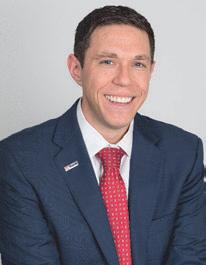




When the Vietnam War began in 1955, Detroit native Eli Greenbaum, the author of “Hell No, We Didn’t Go – Firsthand Accounts of Vietnam War Protest and Resistance,” was only nine years old. Greenbaum graduated from Mumford High School in 1963 with his eyes on becoming a lawyer. He enrolled at Wayne State University to start his English Composition Degree and Political Science minor.
The military draft was in full force and Presidential Executive Orders kept widening the acceptance and deleting exemptions. Greenbaum registered for the draft when he turned 18. Even with a student deferment, he felt the pressure of the draft. Upon graduation in 1967, he started law school – keeping his deferment – briefly.
“I didn’t like it. I dropped out after a year,” Greenbaum said. “I lost my student deferment but failed my physical.”
After a gap year, Greenbaum worked in advertising as a copywriter but was convinced by his family to go back to law school. He did, passed the bar, worked in the industry for five years but decided to go back to advertising. Meanwhile, the United States was in the heat of the Civil Rights movement, drugs, sex and rock and roll as well as the sexual revolution on top of the strains of being in Vietnam.
Greenbaum took part in protests but wasn’t staunch or “a headliner” in his efforts.
“I was a protester but I didn't throw bombs. I didn't get arrested and I wasn't there overturning cars,” he explained. “I marched. Wayne State University was a hotbed. All of Detroit was a hotbed of protests and we weren't very popular for a long time. It was conservative America. It was America – love it or leave it.”
On a trip to Pittsburgh a decade ago to see a former classmate, the Bloomfield Township resident said their conversations weaved through those protests and names of other friends and their Vietnam-era stories.
“We started to wonder about what happened to this guy, what happened to that guy,” he said. “And we're driving home, and my wife, a freelance book editor, said to me, ‘You know, you ought to write a book about this.’”
He started talking to friends and gathering their stories.
“There were a couple in Europe. And Canada – people who had fled the country to avoid the draft. People who were conscientious objectors. People who enlisted to avoid the draft because that at least gave you some control over what happened to you in the military. I got a cross-section of people and the stories in the book, which are first-hand accounts. They're oral histories.”
About 40 of the 100 interviews make up the book, but in telling the stories, Greenbaum had one foundation in place.
“One thing I want to make very clear – at no point in this book do I diss the soldiers who did serve. They need to be respected. They served.”
His first draft was in his own words, “Crap. It was cramped. It was just crap. And my wife told me that.”
He decided to merge his own story with the others with historical context. Picked up by University Press of Kansas, the book is not a scholastic endeavor, but after four academic reviews, it was approved as accurate.
“They felt it was accurate. They felt the context was correct. It presents to a younger reader who picks this up and says, ‘I don't know a damn thing about this work and about this situation,’ at least they'll have some context to understand.”
The book is available on Amazon and through the University Press of Kansas website and bookstores. Greenbaum will be at Schuler Books in West Bloomfield on June 13th at 6:30 p.m. to discuss the book.
Story:Mark H. Stowers
Photo: Barbara Bloom





















pizza spot opening
Green Lantern Pizza is opening a Bloomfield Township outpost at 42825 Woodward Avenue in Bloomfield Township in June. Green Lantern Pizza first opened in Madison Heights in 1955 by Thomas and Irene Vettraino, and they boast, “We’re the real deal. We combine an old school casual-diner feel with modern food and fast service.” The new Bloomfield Township location will be the 13th Green Lantern location offering both sit down pizza, carryout and delivery. They offer a wide selection of specialty pizzas, including build-your-own, sandwiches, burgers, subs, salads, appetizers, sides, soups and chili. Located just south of Square Lake Road, it sounds like no one stopping by will leave hungry.
closure
With two pet stores side-by-side – PetSmart and Earthwise Pet – in the Costco shopping plaza at Telegraph and Square Lake roads in Bloomfield Township, it appears PetSmart is the winner, as Earthwise Pet Bloomfield, 2207A Telegraph Road,closed its doors in May. In an email, it announced, “It is with a mix of emotions that we announce the closing of Earthwise Pet Bloomfield on May 4th, 2024. We’ve truly enjoyed serving you and your furry friends over the years, and we want to express our deepest gratitude for your loyalty and support. We’ve cherished the relationships we’ve built with our customers and will miss seeing you and your pets. Sincerely – Mark, Dawn and the Entire Earthwise Pet Bloomfield Team.”
A new luxury building at 370 Brown Street in downtown Birmingham beginning construction by the Boji Group of Birmingham will feature luxurious residential units and premium office space anchored by
JPMorgan Chase, the company announced. “The new $80 million project at 370 Brown Street (will) sets a new standard in mixed-use development,” the Boji Group said in a release. The modern four-story structure, totaling 135,000 square feet, includes a first-level landscaped interior courtyard with a water feature, and a pedestrianfriendly courtyard with benches and other amenities to help bring daylight into the building. The ground level and second floor, totaling more than 42,000 square feet, will include a JPMorgan Chase office, which will provide wealth management services and commercial banking. “For more than 90 years, JPMorgan Chase has supported the Greater Detroit area,” said Terrah Opferman, Michigan Region Manager, Middle Market Banking for JPMorgan Chase. “We’re excited to bring greater value to local families and businesses as we help them achieve their unique banking and financial goals through unmatched capabilities and exceptional client service.” Luxury residences will populate the third level, and there will be rooftop amenities, including a water feature, cabanas, an ecograss lawn, and grills and firepits. Victor Saroki, founder and president of Saroki Architecture, who designed the new building and the adjacent RH building, said the 370 Brown Street project “is designed to reflect and enhance the surrounding buildings and the downtown Birmingham aesthetic.” The project is anticipated to be completed in spring 2026.
Floral aficionados have a new place for flowers and gifts. Luxe Flowers has opened at 33422 Woodward Avenue in Birmingham. Owner Aleen Danjou has been in the floral business for 17 years, working on high-end weddings, all kinds of special events, and the creation of special arrangements, including funeral arrangements. Her new shop features not only a
beautiful assortment of fresh flowers but everything for the home, she said, including small accessories, specialized gifts and other unique touches. “We’re very big on holidays, especially Christmas and Jewish holidays like Hanukkah. It’s a really fun and big part of our business,” Danjou said. In addition to Luxe Flowers in Birmingham, Danjou has a big warehouse in Wixom, where large floral and other items can be created and stored for parties. All local floral deliveries are provided free of charge, she said.
Feeling better in all parts of life is not the sole province of women. REDEEM Sexual Wellness & Aesthetics Center has opened its latest center at 2151 E. Fourteen Mile Road, Suite 200, in Birmingham. REDEEM is a Sexual Wellness and Aesthetics Center that was formed as a partnership between the MOXXI Aesthetics and Sexual Wellness Spa and Michigan Institute of Urology in 2023 to provide state-of-the-art procedures for all clientele. They are passionate about making clients feel exceptional, inside and out while providing expert education that is tailored to a client’s needs. REDEEM helps clients revitalize and renew their bodies so they can live their very best lives. Among the services offered are Botox/Dysport, dermal fillers, hair restoration, vaginal restoration, penile restoration, Duolith for Ed and MonaLisa Touch.
Business Matters for the BirminghamBloomfield area are reported by Lisa Brody. Send items for consideration to LisaBrody@downtownpublications.com. Items should be received three weeks prior to publication.
Get the latest news online from the leading news organization for the Birmingham and Bloomfield area. Go to downtownpublications.com and register to receive our weekly and breaking news updates, oakland confidential, metro intelligencer, and the threatened planet newsletter from the local area's best website.


















DOLLARS– LET US HELP YOU SLEEP BETTER AT NIGHT.


Owed $207,000.00 –Settled for $7,352.00
Owed $374,416.00 –Settled for $19,181.00

Owed $1,039,938.00 –Settled for $85,824.00












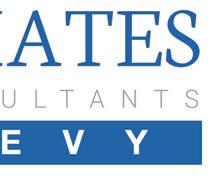

Many of you are aware that the city of Birmingham has purchased the YMCA building at 400 East Lincoln Street to be converted to the new home of Next, the area’s 50-plus community center, as well as providing space for community programs and events.
But many of you may not know how this came to be.
Next, a 501(c)3, has been serving the community for almost 50 years, and for the past 25 years, we have been operating out of a Birmingham Public School building, The Midvale Center. Next utilizes just 10,000 square feet of the building, including sharing the gym with the Early Childhood Center.
In 2014, Next membership was under 1,000 residents with a typical weekly attendance of around 350 people visiting the center. In 2015, we changed our name to Next, attracting a broader membership. We introduced a robust calendar of activities to include many more enrichment activities and created exceptional lifelong learning opportunities. With those and many more enhancements, Next has become a warm and welcoming center where residents want to be and feel a sense of belonging.
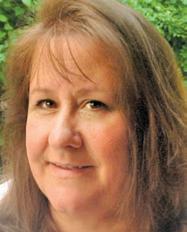

Today, Next serves over 2,500 area residents, with more than 1,500 weekly visits to the center, attending more than 250 monthly programs. What has not changed is Next’s operating space, still five rooms and a shared gym at 10,000 square feet, which presents quite a challenge.
Next has been very creative and innovative with the current space, but Next services and offerings are very compromised with wait lists, cancelled sessions due to room shortages, and classes not offered simply because of the limited space available.
With the over-50 population growing almost exponentially, far outpacing other cohorts, Next has been searching for solutions for quite some time. Over the past ten years, Next diligently explored the idea of signing a longterm lease (or purchase) with Birmingham Public Schools that would allow Next to modify the Midvale building to better suit a growing membership. We went back and forth with several superintendents and remained hopeful that we would be allowed to make Midvale a permanent home for Next. But as of late, the schools solidified their own strategic plan that includes expanding their preschool. It was clear that Next was not going to be able to continue to grow at Midvale.
Most municipalities have a senior services department. Birmingham is unique and benefits from partnering with Next as a 501(c)3. Next has a long history of being extremely effective, well-run and economically a better business model because of the cost savings Next provides the city, while being uniquely focused on the needs of older residents.
In early 2023, the Birmingham City Commission charged former city manager Tom Markus to work with Next to explore other options for a future facility. Together we looked into what little available land there was in Birmingham, private property, faith-based organizations, and service organizations, all to no avail.
This is the same time we met with the YMCA regional and local leadership to discuss a shared space. Our timing was good. The CEO of the Southeast Michigan YMCA was looking to consolidate operations by selling the Birmingham building and focus their attention on a new state-of-the-art building in Royal Oak.
The city purchased the YMCA building last July with a written agreement in place that it would become a new home for Next, allowing Next to occupy 30,000 square feet of the 40,000 square foot building. Some of that
will be shared space and the remainder could be space for potential community-based partners.
To that end, the city began to plan on how best to handle this older building as well as finance the project. Next committed $500,000 to the facility as well as securing a $250,000 grant from Oakland County to support the initial work.
In November of 2023, Birmingham residents overwhelmingly voted to approve a three-year, .33 mill senior millage that would be the seed money to begin the project.
Next is very excited. After a long decade of an uncertain future, there finally is a defined path to a better suited home that will meet the needs of our growing older population. Next has been in an undersized facility for far too long, and has compromised its offerings and services to a highly respected segment of the population that deserves much better.
The city commission understands the need to support our older residents and provide a safe place to gather, connect and thrive. A permanent home for Next was identified as one of the commission’s top three priorities at the beginning of their most recent term.
What will the new facility look like? That is being earnestly studied right now. A well designed building will be utilized by Next as well as the community with multipurpose rooms, meeting spaces, a large gym that can accommodate several indoor pickleball courts, among other uses, a health and wellness center, extended hours and outdoor spaces that will serve the community well into the future.
The feasibility study is currently being conducted by NORR LLC., to understand the true condition of the building. What can be salvaged, what should be replaced, is it a renovation or a rebuild? And how to design an open, welcoming and accessible space, keeping in mind the costs associated with various build out options. All this needs to be considered in a timeline of just a few years. Currently, Next has a memo of understanding with the Birmingham Public Schools allowing the use of Midvale until June 2026.
The city leadership has put in place safeguards to be sure the project moves along smoothly, avoiding trip wires along the way. The city commission is getting regular updates and has installed a nine-person Ad Hoc Committee made up of subject matter experts and two city commissioners. One of the first priorities of the committee was to engage an owner’s representative that will help the city navigate the complexities of the project.
The commissioners, city staff, the Ad Hoc Committee and the owners representative will all work together to transparently oversee the architects and contractors, develop a proposed budget, and come back to the city commission with possible future options for the facility. Through this process, strategic objectives can be realized while considering the evolving needs of the community, creating a space that is inclusive, impactful and sustainable.
To design a building that meets the needs of a growing senior population and the community at large is an exciting opportunity for the city. There is so much potential in a thoughtfully planned building that can offer the community a gathering space to connect to one another, take part in enrichment and lifelong learning opportunities, stay healthy with a variety of fitness classes and wellness presentations, explore the arts, participate in discussion groups and enjoy the camaraderie of neighbors. And most importantly, be one more reason why Birmingham is a great place to grow up and grow old.
Cris Braun is Executive Director of Birmingham Next































































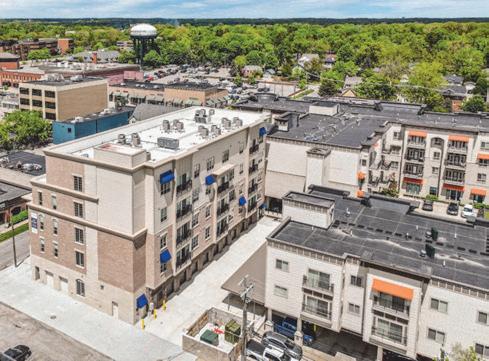
























May is National Historic Preservation Month
Created by the National Trust for Historic Preservation
Dear Loyal Readers:
We hope this message finds you well. All of us at the historic Community House are excited to share something very important and close to our hearts with you - May was National Historic Preservation Month. Created by the National Trust for Historic Preservation in 1971.
“Historic preservation, or as it’s known in some corners of the world heritage preservation or heritage conservation is an endeavor that seeks to preserve, conserve and protect buildings, objects, landscapes or other artifacts of historic significance.”
Historic preservation is important because understanding the past is important. Just ask the venerable historian David McCullough, who wrote, “A nation that forgets its past can function no better than an individual with amnesia.”
Preserved historic buildings, landmarks, and sites of any kind do more than offer us a window onto the past necessary as that window may be.

Historic preservation is “a testament to the history of a community to what’s happened in a community.” From a preservation standpoint, protecting these assets buildings and architecture is of utmost importance. But “It’s not just about architecture: it’s about people. Old buildings, especially in a downtown area, can be the identity of a community.”
Institutions and non-profit organizations, such as The Community House in Birmingham, ethically and effectively are called to manage, document, care for, and use their historic structure and landscapes for the good of the community. For over a century we have recognized and embraced the role of ethics in our policies and procedures regarding the use and care of our historic structure and landscape. We allocate financial resources for the care and management of our historic structure and its landscape. Likewise, we collect, store, and manage the documentation and research related to our historic structure and surrounding property.
Every year, since 1923, The Community House strategically plans for the maintenance, use, and development of its historic building and landscape. Guided by our mission, our organization strives to provide public access to its historic structures and landscapes while ensuring safety and ongoing preservation.
Often forgotten, The Community House is both a nonprofit 501 c 3 charitable organization, providing programs and services to the community, while simultaneously a nonprofit private owner of an historic property — not only designated by age and the test of time, but also designated by the City of Birmingham and the City of Birmingham’s Historical Commission.
According to the City of Birmingham’s Designated Historical Districts: Sec. 127-25The Shain Park Historic District shall consist of all of the land within the boundaries of the Shain Park District as hereby established on the historic district maps. The Shain Park District shall consist of the following described historic resources in the city:
1.Municipal Building, 151 Martin Street
2.Shain Park
3.Baldwin Library, 300 Merrill Street
4.Birmingham Community House, 380 S. Bates Street
5.United States Post Office, 322 Martin Street
Make no mistake, we are called to “preserve, conserve and protect our building, objects, landscapes and other artifacts of historic significance.” This awesome duty and responsibility is indeed another facet of our nonprofit work and stewardship.
As our building ages, more and more of our nonprofit fundraising is being re-directed from operations and charitable support of civic and other worthy groups, towards the protection, restoration, and preservation of our original 101-year-old aging structure and grounds.
For over a century, our historic building has stood as more than just bricks and mortar. It has been a place where stories have unfolded, friendships have been formed,
memories have been made, and our community has come together. It’s important to remind our community from time to time, that part of our non-profit charitable mission includes responsible “stewardship” of the 101-year-old Community House. As time passes, your beloved home away from home needs extra attention to ensure it stands strong for future generations.
Your past support has fueled our mission and allowed us to create positive change. Whether it was through generous donations or active participation in our programs and events, you are an important part of our story.
Today, I invite you to continue making a lasting impact by making a meaningful gift to our annual Restoration and Preservation Fund – to preserve, protect and conserve this historical jewel in our community, and to offset the ever-growing shortfall allocated to community partners (fast approaching twenty-five partners annually) Your important and impactful donation will directly contribute to:
• Historic Preservation: Safeguarding the architectural beauty and historical significance of our building through restoration and maintenance projects.
• Community Partners: Supporting our diverse range of nonprofit partners who also call The Community House home while enriching the lives of individuals and families in Birmingham and beyond.
Please reach deep. We urgently need your generosity and kindness. Together, we can maintain a legacy to look back on with pride! Please don’t let this rare and unique structure continue to crumble. Together we can do this…one brick at a time. In humble and profound gratitude.

 William D. Seklar Board Chair, President & CEO of
William D. Seklar Board Chair, President & CEO of
The Community House Foundation;
Officer, President & CEOThe Community House Association
NOTE: For your convenience, should you like to make a much-needed contribution to the Historical Community House’s Restoration and Preservation Fund – please feel free to mail your contribution to TCH Restoration and Preservation Fund, 380 S. Bates Street, Birmingham, Michigan 48009 or click on the QR Code next to my signature. TCH is a 501 (c) (3) nonprofit tax-exempt charitable organization.
EDUCATION & ENRICHMENT
EARLY CHILDHOOD CENTER – SPRING & FALL REGISTRATIONS NOW OPEN
The Community House’s Early Childhood Center is excited to announce we have a rare, limited number of spots available for our preschool program. With the use of the nationally recognized High-Scope curriculum our amazing teachers are ready to set the foundation of your child’s academic success. Our curriculum uses a whole-child approach to learning, where the child is encouraged to create and execute their plan through hands on classroom exploration. Our program encourages independence, decision-making, and conflict resolution and students graduate from The Community House ECC ready for kindergarten with confidence and the ability to creatively problem solve.
With the end of the school year fast approaching coupled with the graduation of our Pre-K and Junior K+ students – we are now accepting Fall 2024 openings in our award-winning, High-Scope Early Childhood Center. Registration is now open. We are accepting applications for ages 0-4. Please contact our Senior Director/Head of School, Ms. Sarah Schuster, at sschuster@communityhouse.com or call (248) 594-6411 to learn more about our program, to arrange a tour, or to secure your child’s spot.
For reservations, sponsorships or more information about booking gathering and meeting space for 2024 and beyond - please go to communityhouse.org or call 248.644.5832.
The historic Community House (TCH) is a solely independent nonprofit 501 c 3 charitable organization. TCH is not and never has been supported by tax dollars or millages.












The Places To Eat for Downtown is a quick reference source to establishments offering a place for dining, either breakfast, lunch or dinner. The listings include nearly all dining establishments with seating in the Birmingham/Bloomfield area, and then some select restaurants outside the immediate area served by Downtown.
220: American. Brunch, weekends, Lunch & Dinner, daily. Reservations. Liquor. 220 E. Merrill Street, Birmingham, 48009. 248.646.2220. 220restaurant.com
5th Tavern: American. Brunch, weekends, Lunch & Dinner daily. No reservations. Liquor. 2262 S. Telegraph Road, Bloomfield Township, 48302. 248.481.9607. 5thtavern.com
Adachi: Japanese. Lunch & Dinner daily. Liquor. Reservations. 325 S. Old Woodward Avenue, Birmingham 48009. 248.540.5900. adachirestaurant.com
Andiamo: Italian. Lunch, Monday-Friday, Dinner, daily. Reservations. Liquor. 6676 Telegraph Road, Bloomfield Township, 48301. 248.865.9300. andiamoitalia.com
Beau’s: American. Brunch, weekends, Lunch & Dinner, daily. Reservations. Liquor. 4108 W. Maple Road, Bloomfield Hills, 48301. 248.626.2630. beausbloomfield.com
Bella Piatti: Italian. Dinner, Tuesday-Saturday. Reservations. Liquor. 167 Townsend Street, Birmingham, 48009. 248.494.7110. bellapiattirestaurant.com
Beverly Hills Grill: American. Breakfast, Lunch & Dinner, Tuesday-Sunday. Reservations. Liquor. 3147 Southfield Road, Beverly Hills, 48205. 248.642.2355. beverlyhillsgrill.com
Beyond Juicery + Eatery: Contemporary. Breakfast, Lunch & Dinner, daily. No reservations. 270 W. Maple Road, Birmingham, 48009; 221 Cole Street, Birmingham, 48009; 3645 W. Maple Road, Bloomfield Hills, 48301; 4065 W. Maple Road, Bloomfield Township, 48301; 1987 S. Telegraph Road, Bloomfield Hills, 48302. beyondjuiceryeatery.com
Bill’s: American. Breakfast, weekends, Lunch, Wednesday-Sunday, Dinner, daily. Reservations. Liquor. 39556 Woodward Avenue, Bloomfield Hills, 48304. 248.646.9000. billsbloomfieldhills.com
Birmingham Pub: American. Brunch, weekends, Lunch & Dinner, TuesdaySunday. Reservations. Liquor. 555 S. Old Woodward Avenue, Birmingham, 48009. 248.885.8108. thebirminghampub.com
Birmingham Sushi Cafe: Japanese. Lunch & Dinner, daily. Reservations. Liquor. 377 Hamilton Row, Birmingham, 48009. 248.593.8880. birminghamsushi.com
Bistro Joe’s Kitchen: Global. Brunch, weekends, Dinner, Tuesday-Sunday. Reservations. Liquor. 34244 Woodward Avenue, Birmingham, 48009. 248.594.0984. bistrojoeskitchen.com
Bloomfield Deli: Deli. Breakfast & Lunch, Monday-Friday. No reservations. 71 W. Long Lake Road, Bloomfield Hills, 48304. 248.645.6879. bloomfielddeli.com
Brooklyn Pizza: Pizza. Lunch & Dinner, daily. Liquor. No reservations. 111 Henrietta Street, Birmingham, 48009. 248.258.6690. thebrooklynpizza.com
Café Dax: American. Breakfast, daily, Lunch, daily. No reservations. Liquor. 298 S. Old Woodward Avenue, Birmingham, 48009. 248.283.4200. daxtonhotel.com
Café ML: New American. Dinner, daily. Reservations. Liquor. 3607 W. Maple Road, Bloomfield, 48301. 248.642.4000. cafeml.com
Casa Pernoi: Italian. Dinner, Tuesday-Saturday. Reservations. Liquor. 310 E. Maple Road, Birmingham, 48009. 248.940.0000. casapernoi.com
Churchill’s Bistro & Cigar Bar: Lunch & Dinner, daily. No reservations. Liquor. 116 S. Old Woodward Avenue, Birmingham, 48009. 248.647.4555. churchillscigarbar.com
Cityscape Deli: Deli. Lunch & Dinner, MondaySaturday. No reservations. Beer. 877 W. Long Lake Road, Bloomfield Hills, 48302.
248.540.7220. cityscapedeli.com
Commonwealth: American. Breakfast & Lunch, daily. No reservations. 300 Hamilton Row, Birmingham, 48009. 248.792.9766. gocommonwealth.com
Dick O’Dow’s: Irish. Lunch & Dinner, TuesdaySunday. Reservations. Liquor. 160 West Maple Avenue, Birmingham, 48009. 248.642.1135. dickodowspub.com
Eddie Merlot’s: Steak & seafood. Dinner, daily. Reservations. Liquor. 37000 Woodward Avenue, Bloomfield Hills, 48304. 248.712.4095. eddiemerlots.com
Einstein Bros. Bagels: Deli. Breakfast & Lunch, daily. No reservations. 4089 West Maple Road, Bloomfield Hills, 48301. 248.258.9939. einsteinbros.com
Elie’s Mediterranean Grill/Bar: Mediterranean. Lunch & Dinner, Monday-Saturday. No reservations. Liquor. 263 Pierce Street, Birmingham, 48009. 248.647.2420. eliesgrill.com
EM: Mexican. Brunch, weekends. Lunch & Dinner, Wednesday-Sunday. Reservations. Liquor. 470 N. Old Woodward Avenue, Birmingham, 48009. 947.234.0819. embirmingham.com
Embers Deli & Restaurant: Deli. Breakfast & Lunch, Tuesday-Sunday. Dinner, TuesdayFriday. No reservations. 3598 West Maple Road, Bloomfield Hills, 48301. 248.645.1033. embersdeli1.com
Flemings Prime Steakhouse & Wine Bar: American. Dinner, daily. Reservations. Liquor. 323 N. Old Woodward Avenue, Birmingham, 48009. 248.723.0134. flemingssteakhouse.com
Forest: European. Dinner, Tuesday-Saturday. Reservations. Liquor. 735 Forest Avenue, Birmingham 48009. 248.258.9400. forestbirmingham.com
Greek Islands Coney Restaurant: Greek. Breakfast, Lunch & Dinner, daily. No reservations. 221 Hamilton Row, Birmingham, 48009. 248.646.1222. greekislandsconey.com
Griffin Claw Brewing Company: American. Lunch, Thursday-Sunday, Dinner, TuesdaySunday. No Reservations. Liquor. 575 S. Eton Street, Birmingham. 248.712.4050. griffinclawbrewingcompany.com
Hazel’s: Seafood. Brunch, weekends, Lunch & Dinner, Tuesday-Sunday. Reservations. Liquor. 1 Peabody Street, Birmingham. 248.671.1714. eatathazels.com
Honey Tree Grille: Greek/American. Breakfast, Lunch, Dinner, daily. No reservations. 3633 W. Maple Rd, Bloomfield, MI 48301. 248.203.9111. honeytreegrille.com
Hunter House Hamburgers: American. Lunch & Dinner, daily. No reservations. 35075 Woodward Avenue, Birmingham, 48009. 248.646.7121. hunterhousehamburgers.com
Hyde Park Prime Steakhouse: American. Dinner, daily. Reservations. Liquor. 201 S. Old Woodward Avenue, Birmingham, 48009. 248.594.4369. hydeparkrestaurants.com
IHOP: American. Breakfast, Lunch, & Dinner, daily. No reservations. 2187 S. Telegraph Road, Bloomfield Hills, MI 48301. 248.333.7522. Ihop.com
Joe Muer Seafood: Seafood. Dinner daily. Reservations. Liquor. 39475 Woodward Avenue, Bloomfield Hills, 48304. 248.792.9609. joemuer.com
Kaku Sushi and Poke’: Asian. Lunch, MondayFriday & Dinner daily. No reservations. 869 W. Long Lake Road, Bloomfield Township, 48302. 248.480.4785, and 126 S. Old Woodward, Birmingham, 48009. 248.885.8631. kakusushipoke.com
Kerby’s Koney Island: American. Breakfast, Lunch & Dinner, daily. No reservations. 2160 N. Woodward Avenue, Bloomfield Hills, 48304. 248.333.1166. kerbyskoneyisland.com
La Marsa: Mediterranean. Lunch & Dinner daily. Reservations. 43259 Woodward Avenue, Bloomfield Hills, 48302. 248.858.5800. lamarsacuisine.com
La Strada Italian Kitchen & Bar: Italian. Dinner, Tuesday-Saturday. Reservations. Liquor. 243 E. Merrill Street, Birmingham, 48009. 248.480.0492. lastradaitaliankitchen.com


The Birmingham/Bloomfield area is filled with discriminating diners and an array of dining establishments. Make sure the message for your restaurant reaches the right market in the right publication—Downtown. Contact Mark Grablowski for advertising rate
Leo’s Coney Island: American. Breakfast, Lunch & Dinner, daily. No reservations. 154 S. Old Woodward Avenue, Birmingham, 48009. 248.593.9707. Also 6527 Telegraph Road, Bloomfield Hills, 48301. 248.646.8568. leosconeyisland.com
Lincoln Yard and Little Yard: American. Little Yard take-out hours: Breakfast, Lunch & Dinner, daily. Lincoln Yard hours: Lunch & Dinner, daily. Reservations. Liquor. 2159 E. Lincoln Street, Birmingham, 48009. 248.653.5353. eatlincolnyard.com
Little Daddy’s: American. Breakfast, Lunch & Dinner, daily. No reservations. 39500 Woodward Avenue, Bloomfield Hills, 48304. 248.647.3400. littledaddys.com
Luxe Bar & Grill: American. Lunch & Dinner, daily. No reservations. Liquor. 525 N. Old Woodward Avenue, Birmingham, 48009. 248.792.6051. luxebarandgrill.com
Madam: American. Brunch, weekends. Lunch, Monday-Friday, Dinner daily. Reservations. Liquor. 298 S. Old Woodward Avenue, Birmingham, 48009. 248.283.4200. daxtonhotel.com
Mare Mediterranean: Seafood. Brunch, weekends. Dinner, Tuesday-Saturday. Reservations. Liquor. 115 Willits Street, Birmingham 48009. 248.940.5525. maremediterranean.com
Market North End: American. Lunch & Dinner, daily. Reservations. Liquor. 474 N. Old Woodward Avenue, Birmingham, 48009. 248.712.4953. marketnorthend.com
MEX Mexican Bistro & Tequila Bar: Mexican. Brunch, weekends. Lunch & Dinner, daily. Reservations. Liquor. 6675 Telegraph Road, Bloomfield Township, 48301. 248.723.0800. mexbloomfield.com
Middle Eats: Mediterranean. Lunch and Dinner, daily. No reservations. 42967 Woodward Avenue, Bloomfield, 48093. 248.274.328. middleeats.com
Nippon Sushi Bar: Japanese. Lunch, MondayFriday, Dinner daily. No reservations. Liquor. 2079 S. Telegraph Road, Bloomfield Township, 48302. 248.481.9581. nipponsushibar.com
Olga’s Kitchen: American. Lunch & Dinner, daily. No reservations. 2075 S. Telegraph Road, Bloomfield Hills, 48302. 248.451.0500. olgas.com
Original Pancake House: American. Breakfast & Lunch, daily. No reservations. 33703 South Woodward Avenue, Birmingham, 48009. 248.642.5775. oph-mi.com
Phoenicia: Lebanese. Lunch, Monday-Friday, Dinner, daily. Reservations. Liquor. 588 S. Old Woodward Birmingham, 48009. phoeniciabirmingham.com
Planthropie: Vegan. Dessert and Cheese. Tuesday-Sunday. 135 Pierce Street, Birmingham, 48009. 248.839.5640. planthropie.com
Roadside B & G: American. Brunch, weekends, Dinner, daily. Reservations. Liquor. 1727 Telegraph Road, Bloomfield, 48302. 248.858.7270. roadsidebandg.com
Salvatore Scallopini: Italian. Lunch & Dinner, daily. No reservations. Beer & Wine. 505 North Old Woodward Avenue, Birmingham, 48009. 248.644.8977. salsbirmingham.com
Shift Kitchen & Cocktails: Small plates. Dinner, daily. Reservations. Liquor. 117 Willits Street, Birmingham, 48009. 248.792.2380. shiftbirmingham.com
Sidecar: American. Lunch and Dinner, daily. Liquor. 117 Willits Street, Birmingham, 48009. 248.792.2380. sidecarsliderbar.com
Slice Pizza Kitchen: Pizza. Lunch and Dinner, daily. Liquor. 117 Willits Street, Birmingham, 48009. 248.792.3475. slicepizzakitchen.com
Social Kitchen & Bar: American. Lunch & Dinner, daily. Brunch, Saturday & Sunday. Reservations. Liquor. 225 E. Maple Road, Birmingham, 48009. 248.594.4200. socialkitchenandbar.com
Steve’s Deli: Deli. Breakfast, Lunch & Dinner, Monday-Saturday. Breakfast and Lunch, Sunday. No reservations. 6646 Telegraph Road, Bloomfield, 48301. 248.932.0800. stevesdeli.com
Streetside Seafood: Seafood. Lunch, Thursday & Friday, Dinner, daily. Liquor. 273 Pierce Street, Birmingham, 48009. 248.645.9123. streetsideseafood.com
Sushi Hana: Japanese. Lunch & Dinner, daily. Reservations. Liquor. 42656 Woodward Avenue, Bloomfield Hills, 48304. 248.333.3887. sushihanabloomfield.com
Sy Thai Cafe: Thai. Lunch & Dinner, Monday and Wednesday-Sunday. No reservations. 315 Hamilton Row, Birmingham, 48009. 248.258.9830. sythaibirmingham.com
Sylvan Table: American. Dinner, daily. Reservations. Liquor. 1819 Inverness Street, Sylvan Lake, 48320. 248.369.3360. sylvantable.com
Tallulah Wine Bar and Bistro: American. Dinner, Monday-Saturday. Reservations. Liquor. 55 S. Bates Street, Birmingham, 48009. 248.731.7066. tallulahwine.com
Thai Street Kitchen: Thai. Lunch & Dinner, Monday-Saturday. No reservations. 42805 Woodward Avenue, Bloomfield Township, 48304. 248.499.6867 thaistreetkitchen.com
The French Lady: French. Lunch & Dinner, Tuesday-Sunday. Reservations. 768 N. Old Woodward, Birmingham, 48009. 248.480.0571. zefrenchlady.com
The Gallery Restaurant: American. Breakfast, Lunch & Dinner, daily. No reservations. Beer & wine. 6683 Telegraph Road, Bloomfield Hills, 48301. 248.851.0313. galleryrestaurant2.com
The Moose Preserve Bar & Grill: American. Lunch & Dinner, daily. No reservations. Liquor. 2395 S. Woodward Avenue, Bloomfield Hills, 48302. 248.858.7688. moosepreserve.com
The Morrie: American. Dinner, Friday & Saturday. Reservations. Liquor. 260 N. Old Woodward Avenue, Birmingham 48009. 248.940.3260. themorrie.com
The Rugby Grille: American. Breakfast, Lunch & Dinner, daily. Reservations. Liquor. 100 Townsend Street, Birmingham, 48009. 248.642.5999. rugbygrille.com
Toast: American. Breakfast & Lunch, daily; Reservations. Liquor. 203 Pierce Street, Birmingham, 48009. 248.258.6278. eatattoast.com
Tomatoes Apizza: Pizza. Lunch & Dinner daily. Carryout. 34200 Woodward Avenue, Birmingham 48009. 248.258.0500. tomatoesapizza.com
Touch of India: Lunch, Tuesday-Thursday, Saturday & Sunday. Dinner, Tuesday-Sunday. No reservations. 297 E. Maple Road, Birmingham, 48009. 248.593.7881. thetouchofindia.com
Townhouse: American. Brunch, weekends. Lunch & Dinner, daily. No reservations. Liquor. 180 Pierce Street, Birmingham, 48009. 248.792.5241. eatattownhouse.com
Whistle Stop Diner: American. Breakfast & Lunch, daily; Liquor. No reservations. 501 S. Eton Street, Birmingham, 48009. 248.566.3566. whistlestopdiners.com
ZANA: Modern American. Dinner, TuesdaySunday. Reservations. Liquor. 210 S. Old Woodward Avenue, Birmingham, 48009. 248.800.6568. zanabham.com
Zao Jun: Asian. Lunch, Tuesday-Sunday, Dinner, daily. Reservations. Liquor. 6608 Telegraph Road, Bloomfield Hills, 48301. 248.949.9999. zaojunnewasian.com
Ale Mary’s: American. Brunch, weekends, Lunch & Dinner, daily. Reservations. Liquor. 316 South Main Street, Royal Oak, 48067. 248.268.1917. alemarysbeer.com
Anita’s Kitchen: Middle Eastern. Lunch, Monday-Saturday, Dinner, Monday-Saturday. No reservations. Liquor. 22651 Woodward Avenue, Ferndale, 48220. 248.548.0680. anitaskitchen.com
Bandit Tavern & Hideaway: American. Lunch & Dinner, daily. Reservations. Liquor. 419 S. Main Street, Royal Oak, 48067. 248.544.6250. bandittavern.com
Beppé: New American. Lunch, Saturday and Sunday. Dinner, daily. No reservations. Liquor.703 N. Main Street, Royal Oak,
48067. 248.607.7030. eatbeppe.com
Bigalora: Italian. Lunch & Dinner, daily. Reservations. Liquor. 711 S. Main Street, Royal Oak, 48067. 248.544.2442 bigalora.com
Cafe Muse: French. Breakfast & Lunch, Wednesday-Monday. Reservations. Liquor. 418 S. Washington Avenue, Royal Oak, 48067. 248.544.4749. cafemuseroyaloak.com
Coeur: New American Small Plates. Brunch, weekends, Dinner, Wednesday-Sunday. Reservations. Liquor. 330 W. Nine Mile Road, Ferndale, 48220. 248.466.3010. coeurferndale.com
Como’s: Pizza. Brunch, weekends. Lunch & Dinner, daily. Reservations. Liquor. 22812 Woodward Avenue, Ferndale, 48220. 248.677.4439. comosrestaurant.com
Crispelli’s Bakery and Pizzeria: Italian. Lunch and Dinner, daily. No reservations. Liquor. 28939 Woodward Avenue, Berkley, 48072. 248.591.3300. crispellis.com
The Fly Trap: Diner. Breakfast & Lunch, daily. Dinner, Thursday-Sunday. No reservations. 22950 Woodward Avenue, Ferndale 48220. 248.399.5150. theflytrapferndale.com
Grand River Brewery: American. Brunch, Saturday & Sunday. Lunch & Dinner, daily. No reservations. Liquor. 1 E. 14 Mile Road, Clawson, 48017. 248.607-3631. grandriverbrewer
HopCat: American. Lunch & Dinner, daily. No reservations. Liquor. 430 S. Main Street, Royal Oak, 48067. 248.744.2544. HopCat.com
Howe’s Bayou: Cajun. Lunch & Dinner, TuesdaySaturday. No reservations. Liquor. 22949 Woodward Avenue, Ferndale, 48220. 248.691.7145. howesbayouferndale.net
Imperial: Mexican. Lunch and Dinner, daily. No reservations. Liquor. 22848 Woodward Avenue, Ferndale, 48220. 248.691.7145. imperialferndale.com
Inyo Restaurant Lounge: Asian Fusion. Brunch, weekends, Lunch & Dinner, daily. Reservations. Liquor. 22871 Woodward Avenue, Ferndale, 48220. 248.543.9500. inyorestaurant.com
Kacha Thai Market: Thai. Lunch and Dinner, Tuesday-Sunday. Reservations. 205 S Main Street, Royal Oak, 48067. 248.942-4246.
KouZina: Greek. Lunch & Dinner, daily. No reservations. 121 N. Main Street, Royal Oak, 48067. 248.629.6500. gokouzina.com
Kruse & Muer on Woodward: American. Lunch, Monday-Saturday, Dinner, daily. Reservations. Liquor. 28028 Woodward Avenue, Royal Oak, 48067. 248.965.2101. kruseandmuerrestaurants.com
Lily’s Seafood: Seafood. Brunch, weekends, Lunch & Dinner, daily. No reservations. Liquor. 410 S. Washington Avenue, Royal Oak, 48067. 248.591.5459. lilysseafood.com
Lockhart’s BBQ: Barbeque. Brunch, Sunday, Lunch & Dinner, Tuesday-Sunday. No reservations. Liquor. 202 E. Third Street, Royal Oak, 48067. 248.584.4227. lockhartsbbq.com
Masala: Indian. Lunch & Dinner, daily. Reservations. 106 S. Main Street, Royal Oak, 48067. 248.850.8284. food.orders.co/royaloakmasala
Mezcal: Mexican. Bruch, Sunday. Lunch and Dinner, daily. No reservations. Liquor. 201 E. Nine Mile Road, Ferndale, 248.268.3915. mezcalferndale.com
Pastaio: Italian. Dinner, Wednesday-Sunday. Reservations. Liquor. 208 W. 5th Street, Royal Oak, 48067. 248.565.8722. eatpastaio.com
Oak City Grille: American. Dinner, TuesdaySunday. Reservations. Liquor. 212 W. 6th Street, Royal Oak, 48067. 248.556.0947. oakcitygrille.com
Oak Parker: American. Lunch and Dinner, daily. No reservations. Liquor. 13621 W Eleven Mile Road, Oak Park,48327 oakparkerbar.com.
One-Eyed Betty’s: American. Breakfast, weekends, Dinner, daily. No reservations. Liquor. 175 W. Troy Street, Ferndale, 48220. 248.808.6633. oneeyedbettys.com
Pop’s for Italian: Italian. Brunch and Lunch, weekends, Dinner, Tuesday-Saturday. Reservations. 280 W. 9 Mile Road,
Ferndale,48220. 248.268.4806. popsforitalian.com
Public House: American. Lunch & Brunch, weekends, Dinner, daily. No reservations. Liquor. 241 W. Nine Mile Road, Ferndale, 48220. 248.850.7420. publichouseferndale.com
Redcoat Tavern: American. Lunch & Dinner, daily. No reservations. Liquor. 31542 Woodward Avenue, Royal Oak, 48073. 248.549.0300. redcoat-tavern.com
Ronin: Japanese. Dinner, daily. No reservations. Liquor. 326 W. 4th Street, Royal Oak, 48067. 248.546.0888. roninsushi.com
Royal Oak Brewery: American. Lunch & Dinner, Tuesday-Sunday. No reservations. Liquor. 215 E. 4th Street, Royal Oak, 48067. 248.544.1141. royaloakbrewery.com
Sozai: Japanese.Dinner, Tuesday-Saturday. Reservations. 449 West 14 Mile Road, Clawson,48017. 248.677-3232. sozairestaurant.com
The Morrie: American. Brunch, weekends, Dinner, Thursday-Sunday. No reservations. Liquor. 511 S. Main Street, Royal Oak, 48067. 248.216.1112. themorrie.com
Three Cats Cafe: American. Brunch, weekends, Lunch, Tuesday-Sunday. Dinner, Wednesday-Saturday. Reservations. Liquor. 116 W 14 Mile Road, Clawson, 48017. 248.900.2287. threecatscafe.com
Tigerlily: Japanese. Dinner, daily. Reservations. Liquor. 231 W. Nine Mile Road, Ferndale, 48220. 248.733.4905. tigerlilyferndale.com
Toast, A Breakfast and Lunch Joint: American. Breakfast & Lunch, daily. No reservations. 23144 Woodward Avenue, Ferndale, 48220. 248.398.0444. eatattoast.com
Tom’s Oyster Bar: Seafood. Lunch & Dinner, daily. Reservations. Liquor. 318 S. Main Street, Royal Oak, 48067. 248.541.1186. tomsoysterbar.com
Trattoria Da Luigi: Italian. Dinner, TuesdaySunday. Reservations. Liquor. 415 S, Washington Avenue, Royal Oak, 48067. 248.542.4444. trattoriadaluigi.business.site.com
Vinsetta Garage: American. Lunch, TuesdaySaturday, Dinner, daily. Reservations. Liquor. 7799 Woodward Avenue, Berkley, 48072. 248.548.7711. vinsettagarage.com
Voyager: Seafood. Dinner, Tuesday-Saturday. Reservations. Liquor. 600 Vester Street, Ferndale, 48220. 248.658.4999. voyagerferndale.com
Cafe Sushi: Pan-Asian. Lunch, Tuesday-Friday, Dinner, Tuesday-Sunday. Reservations. Liquor. 1933 W. Maple Road, Troy, 48084. 248.280.1831. cafesushimi.com
Capital Grill: Steak & Seafood. Lunch & Dinner, daily. Reservations. Liquor. 2800 W. Big Beaver Road, Somerset Collection, Troy, 48084. 248.649.5300.
CK Diggs: American & Italian. Lunch & Dinner, Tuesday-Saturday. Reservations. Liquor. 2010 W. Auburn Road, Rochester Hills, 48309. 248.853.6600. ckdiggs.com
Firebird Tavern: American. Lunch & Dinner, Tuesday-Sunday. Reservations. Liquor. 4845 Rochester Road, 48085. 248.289.9650. firebirdtaverntroy.com
Grand Castor: Latin American. Lunch, Thursday-Sunday, Dinner, daily. Reservations. Liquor. 2950 Rochester Road, Troy, 48083. 248.278.7777. grancastor.com
Kona Grille: American. Brunch, weekends, Lunch & Dinner, daily. Reservations. Liquor. 30 E. Big Beaver Road, Troy, 48083. 248.619.9060. konagrill.com
Kruse & Muer on Main: American. Lunch & Dinner, daily. Reservations. Liquor. 327 S. Main Street, Rochester, 48307. 248.652.9400. kruseandmuerrestaurants.com
Loccino Italian Grill and Bar: Italian. Lunch, Monday-Friday, Dinner, daily. Liquor. Reservations. 5600 Crooks Road, Troy, 48098. 248.813.0700. loccino.com
The Meeting House: American. Brunch, weekends, Dinner, Tuesday-Sunday. No

Our 29th Year
Metro Intelligencer is a monthly column devoted to news stories, tidbits and gossip items about what's happening on the restaurant scene in the metro Detroit area. Metro Intelligencer is reported/created each month by Gigi Nichols who can be reached at GigiNichols@DowntownPublications.com with news items or tips, on or off the record.
A new Mexican restaurant has opened in Royal Oak. Café de Olla is sharing a space with Royal Oak’s Café Muse on Washington Avenue. The partnership makes perfect sense since Café Muse is only open for breakfast and lunch and Café de Olla is open for dinner six nights a week (TuesdaySunday). Also, on Tuesday mornings, the one morning when Café Muse is closed, Café de Olla will serve up a classic Mexican breakfast made complete with “cafe de olla” – which is aMexican spiced coffee as well as the café’s namesake. The establishment is owned by the De la Mora family – mother Ara Sotella serving as head chef. Sotella explains that what really differentiates their restaurant from other Mexican restaurants is the authenticity of the food. Sotella comes from a family of restaurateurs in Mexico; she went to culinary school in Mexico City as well. Sotella sources fresh ingredients from local markets and Mexican stores throughout Detroit. Most popular dishes include the tortilla soup made fresh with tortilla julienne, cheese, sour cream, avocado and fried pasilla chilis and the enchiladas which featurecorn tortillas filled with chicken bathed in a choice of sauces and topped with sour cream, queso fresco and avocado. There are also a number of authentic Mexican drinks and mocktails on the menu which include Margaritas made with tequila blanco, Triple Sec, homemade Margarita mix, and original pineapple tamarindo, as well as the nonalcoholic Agua Fresca Water made from fresh seasonal fruit such as pineapple, mango, strawberry, cucumber, lime and limonada. 418 S. Washington Avenue, Royal Oak cafedeollaro.com
Oak & Reel’s Culinary Collective
Detroit’s Oak & Reel restaurant continues its popular three-series Culinary Collective featuring nationally acclaimed chefs which offer guests a worldclass meal without having to leave the city of Detroit. Next up, on June 6 and 7, is Michelin-starred chef, Erik Anderson, who helms Barndiva in Sonoma, CA. Anderson, who has worked in many different cities, has received multiple chef awards and praise from the likes of James Beard (for restaurant Sea of Change), The New York Times, GQ Magazine, Bon Appétit, for “Best New Restaurants in America” (for restaurant, The Catbird Seat, Nashville); Food & Wine’s “People’s Best New Chef Midwest” finalist. Anderson also earned two Michelin stars as the Executive Chef of Coi in San Francisco as well as being the opening chef of Truss at the Four Seasons in Napa Valley. The Culinary Collectiveevent includes a six to seven course dinner which includes a beverage pairing – including a non-alcoholic beverage pairing option. Tickets to the event are $250 per person with a percentage of every ticket sold going towards Oak & Reel’s newly founded scholarship fund with Downtown Boxing Gym. The scholarship will help nurture the next generation of culinary artists and hospitality professionals from within our community. Reservations can be made by visiting Oak & Reel’s website. 2921 East Grand Boulevard, Detroit oakandreel.com
Stand 44 has made its debut at Greenfield Village and is the first sit-down restaurant to open at the historic Dearborn attraction since the early 1990’s. The name, “Stand 44,” honors the stall where celebrated local huckster Mary Judge sold her goods in the Detroit Central Market. The restaurant’s architecture is based on the designs of early 20th century architect Albert Kahn. Stand 44 is LEED-certified (Leadership in Energy and Environmental Design), meaning the building has been awarded a globally recognized symbol of sustainability. Plus, all of the waste produced by the restaurant will be composted into a rich soil amendment to be used in the historic farms and gardens. Sustainability is reflected throughout the restaurant from its dishes and dining environment to the behind-the-scenes operations and building materials. It is the first facility in Greenfield Village to compost all of its own waste.The innovative menu offers selections that are prepared from scratch with fresh, local and seasonal ingredients that celebrate the Great Lakes growing community. The rotating menu features chef selections such as roasted salmon with gnocchi and quinoa cakes atop peppery arugula. Comforting chicken noodle soup and hearty roast beef sandwiches and
reservations. Liquor. 301 S. Main Street, Rochester, 48307. 248.759.4825. themeetinghouserochester.com
Mon Jin Lau: Nu Asian. Dinner, daily. Reservations. Liquor. 1515 E. Maple Road, Troy, 48083. 248.689.2332. monjinlau.com
Morton’s, The Steakhouse: Steak & Seafood. Dinner, daily. Reservations. Liquor. 888 W. Big Beaver Road, Troy, 48084. 248.404.9845. mortons.com
NM Café: American. Lunch, Monday-Saturday. Reservations. Liquor. 2705 W. Big Beaver Road, Troy, 48084. 248.816.3424. neimanmarcus.com/restaurants
Oceania Inn: Chinese. Lunch & Dinner, daily. Reservations. Liquor. The Village of Rochester Hills, 3176 Walton Boulevard, Rochester Hills, 48309. 248.375.9200. oceaniainnrochesterhills.com
Ocean Prime: Steak & Seafood. Lunch, MondayFriday, Dinner, daily. Reservations. Liquor. 2915 Coolidge Highway, Troy, 48084. 248.458.0500. ocean-prime.com
O’Connor’s Irish Public House: Irish. Lunch & Dinner, daily. Reservations. Liquor. 324 S. Main Street, Rochester, 48307. 248.608.2537. oconnorsrochester.com
Orchid Café: Thai. Lunch, Monday-Friday, Dinner, Monday-Saturday. Reservations. 3303 Rochester Road., Troy, 48085. 248.524.1944. orchid-cafe.com
P.F. Chang’s China Bistro: Chinese. Lunch & Dinner, daily. Reservations. Liquor. Somerset Collection, 2801 W. Big Beaver Rd., Troy, 48084. 248.816.8000. pfchangs.com
Recipes: American/Brunch. Breakfast & Lunch, daily. No reservations. Liquor. 134 W. University Drive, Rochester, 48037. 248.659.8267. Also 2919 Crooks Road, Troy, 48084. 248.614.5390. recipesinc.com
RH House: American. Brunch, weekends, Lunch and Dinner, daily. 2630 Crooks Road, Rochester Hills, 48309. No reservations. Liquor. 2630 Crooks Road, Rochester Hills, 48309. 248.586.1000. rh.house.com
RH Social: Pizza/Sports Bar. Brunch, Lunch, Dinner, daily. No reservations. Liquor. 6870 N. Rochester Road, Rochester Hills, 48306.248.759.4858. rochesterhillssocial.com
Rochester Chop House: Steak & Seafood. Lunch, Monday-Friday, Dinner, daily. Reservations. Liquor. 306 S. Main St., Rochester, 48307. 248.651.2266. kruseandmuerrestaurants.com
Ruth’s Chris Steak House: Steak & Seafood. Dinner, daily. Reservations. Liquor. 755 W. Big Beaver Road, Troy, 48084. 248.269.8424. ruthschris.com
Sedona Taphouse: American. Lunch & Dinner, daily. Reservations. Liquor. 198 Big Beaver Road, Troy, 48083. 248.422.6167. sedonataphouse.co
Silver Spoon: Italian. Dinner, Monday-Saturday. Reservations. Liquor. 6830 N. Rochester Road, Rochester, 48306. 248.652.4500. silverspoonristorante.com
Too Ra Loo: American. Lunch & Dinner, daily. No reservations. Liquor. 139 S. Main Street, Rochester, 48307. 248.453.5291. tooraloorochester.com
Aurora Italiana: Italian. Dinner, WednesdayMonday. Reservations. Liquor. 6199 Orchard Lake Road, West Bloomfield Township, 48322. 248.782.3000. auroraitaliana.com
Cornbread Restaurant & Bar: Southern. Lunch & Dinner, Thursday-Tuesday. Reservations. Liquor. 29508 Northwestern Highway, Southfield, 48034. 248.208.1680. cornbreadsoulfood.com
Bigalora: Italian. Lunch, Monday-Saturday, Dinner, daily. No Reservations. Liquor. 29110 Franklin Road, Southfield, 48034. 248.544.2442. bigalora.com
The Fiddler: Russian. Brunch, Sunday, Dinner, Thursday-Sunday. Reservations. Liquor. 6676 Orchard Lake Road, West Bloomfield Township, 48322. 248.851.8782. fiddlerrestaurant.com
Nonna Maria’s: Italian. Dinner, TuesdaySaturday. Reservations. Liquor. 2080 Walnut Lake Road, West Bloomfield, 48323. 248.851.2500. nonamariasbistro.com
Pickles & Rye: Deli. Lunch, & Dinner, TuesdaySunday. No reservations. 6724 Orchard Lake Road, West Bloomfield Township, 48322. 248.737.3890. picklesandryedeli.com
Prime29 Steakhouse: Steak & Seafood. Dinner, Tuesday-Sunday. Reservations. Liquor. 6545 Orchard Lake Road, West Bloomfield, 48322. 248.737.7463. prime29steakhouse.com
Redcoat Tavern: American. Lunch & Dinner, Monday-Saturday. No reservations. Liquor. 6745 Orchard Lake Road, West Bloomfield Township, 48322. 248.865.0500. redcoattavern.com
Shangri-La: Chinese. Lunch & Dinner, Wednesday-Monday. Reservations. Liquor. Orchard Mall Shopping Center, 6407 Orchard Lake Road, West Bloomfield Township, 48322. 248.626.8585. dineshangrila.com
Stage Deli: Deli. Lunch, & Dinner, TuesdaySunday. No reservations. Liquor. 6873 Orchard Lake Rd., West Bloomfield Township, 48322. 248.855.6622. stagedeli.com
Yotsuba: Japanese. Lunch & Dinner, TuesdaySunday. Reservations. Liquor. 7365 Orchard Lake Road, West Bloomfield, 48322. 248.737.8282. yotsuba-restaurant.com
West Oakland
Volare Ristorante: Italian. Dinner, daily. Reservations. Liquor. 48992 Pontiac Trail, Wixom, 48393. 248.960.7771. ristorantevolare.com
North Oakland
Clarkston Union: American. Breakfast, Sunday, Lunch, & Dinner, daily. Reservations. Liquor. 54 S. Main Street, Clarkston, 48346 248.620.6100. clarkstonunion.com
Kruse's Deer Lake Inn: Seafood. Lunch & Dinner, daily. Reservations. Liquor. 7504 Dixie Highway, Clarkston, 48346. 248.795.2077. kruseandmuerrestaurants.com
The Fed: American. Brunch, Sunday, Lunch, Saturday, Dinner, Tuesday-Sunday. Reservations. Liquor. 15 S. Main Street, Clarkston, 48346. 248.297.5833. thefedcommunity.com
Via Bologna: Italian. Dinner, Monday-Saturday. No reservations. Liquor. 7071 Dixie Highway, Clarkston, 48346. 248.620.8500. joebologna.com
Union Woodshop: BBQ. Lunch, Saturday & Sunday, Dinner, daily. Reservations. Liquor. 18 S. Main Street, Clarkston, 48346. 248.625.5660. unionwoodshop.com
Alpino: Alpine cuisine. Brunch, Sunday. Dinner, daily. Reservations. Liquor. 1426 Bagley Street, Detroit, 48216. 313.524.0888 alpinodetroit.com
Ash-Bar: Breakfast, Lunch & Dinner, daily. Reservations. Liquor. 1509 Broadway Street, Detroit, 48226. 313.277.4736. ash.world/hotels/the-siren.com
Bar Pigalle: French. Brunch, weekends, Dinner, daily. Reservations. Liquor. 2915 John R Street, Detroit, 48201. 313.497.9200. barpigalle.com
Barda: Argentinian. Dinner, Thursday-Sunday. Reservations. Liquor. 4842 Grand River Avenue, Detroit, 48208. 313.952.5182. bardadetroit.com
Basan: Asian. Dinner, daily. Reservations. Liquor. 2703 Park Avenue, Detroit, 48201. 313.481.2703. basandetroit.com
Bucharest Grill: Middle Eastern. Lunch & Dinner, daily. No reservations. Liquor. 2684 E. Jefferson Avenue, Detroit, 48207. 313.965.3111. bucharestgrill.com
Cash Only Supper Club: American. Dinner, Friday & Saturday. Reservations. Liquor. 1145 Griswold Street, Detroit, 48226. 248.636.2300. cashonlydetroit.com
Chartreuse Kitchen & Cocktails: Seasonal
Mene Sushi: Japanese. Lunch & Dinner, TuesdaySunday. No reservations. Beer & Wine. 6239 Orchard Lake Road, West Bloomfield Township, 48322. 248.538.7081. menesususi.com
American. Lunch, Thursday & Friday. Dinner, Tuesday-Saturday. Reservations. Liquor. 5 E. Kirby Street, Detroit, 48202. 313.818.3915. chartreusekc.com
Cliff Bell’s: American. Dinner, WednesdaySunday. Reservations. Liquor. 2030 Park Avenue, Detroit, 48226. 313.961.2543. cliffbells.com
Coriander Kitchen and Farm: Farm to table. Lunch and Dinner, Wednesday-Monday. Reservations. Liquor. 14601 Riverside Boulevard, Detroit, 48215. 313.338-9466. corianderkitchenandfarm.com
Cuisine: French. Dinner, Tuesday-Saturday. Reservations. Liquor. 670 Lothrop Road, Detroit, 48202. 313.872.5110. cuisinerestaurantdetroit.com
The Eagle: The Eagle: American. Lunch & Dinner, daily. Reservations. Liquor. 3461 Woodward Avenue, Detroit, 48201. 313.334.4530. eaglerestaurant.com
El Barzon: Mexican. Dinner, Tuesday-Sunday. Reservations. Liquor. 3710 Junction Street, Detroit, 48210. 313.894.2070. elbarzonrestaurant.com
Fishbone’s Rhythm Kitchen Café: Cajun. Lunch and Dinner, daily. Reservations. Liquor. 400 Monroe Street, Detroit, 48226. 313.965.4600. fishbonesusa.com
Freya: Price fixed. Dinner, Tuesday-Saturday. Reservations, Liquor. 2929 E. Grand Boulevard, Detroit, 48202. 313.351.5544. freyadetroit.com
Giovanni’s Ristorante: Italian. Dinner, TuesdaySaturday. Reservations. Liquor. 330 S. Oakwood Boulevard, Detroit, 48217. 313.841.0122. giovannisrestaurante.com
Green Dot Stables: American. Lunch & Dinner, daily. No reservations. Liquor. 2200 W. Lafayette, Detroit, 48216. 313.962.5588. greendotstables.com
HIROKI-SAN: Japanese. Dinner, TuesdaySaturday. Reservations. Liquor. 1265 Washington Boulevard, Detroit, 48226. 313.597.8344. hirokisandetroit.com
Joe Muer Seafood: Seafood. Lunch, MondayFriday, Dinner, daily. Reservations. Liquor. 400 Renaissance Center, Detroit, 48243. 313.567.6837. joemuer.com
Johnny Noodle King: Japanese. Lunch & Dinner, daily. No reservations. Liquor. 2601 W. Fort Street, Detroit, 48216. 313.309.7946. johnnynoodleking.com
Leila: Lebanese. Dinner, daily. Reservations. Liquor. 1245 Griswold Street, Detroit, 48226. 313. 816.8100. leiladetroit.com
Le Supreme: French. Dinner, daily. Reservations. Liquor. 1265 Washington Boulevard, Detroit, 48226. 313.597.7734. lesupremedetroit.com
Mad Nice: Coastal Italian/American. Lunch, Wednesday-Sunday, Dinner, daily. Reservations. Liquor. 4120 2nd Avenue, Detroit, 48201.313.558.8000. madnicedetroit.com
Mario’s: Italian. Lunch, Saturday & Sunday, Dinner, Tuesday-Sunday. Reservations. Liquor. 4222 2nd Avenue, Detroit, 48201. 313.832.1616. mariosdetroit.com
Mezcal: Mexican. Brunch, Weekends, Lunch and Dinner, daily. Reservations. Liquor. 51 W Forest Avenue, Detroit, 48202. 313.974.7441. mezcaldetroit.com
Midtown Shangri-la: Chinese. Lunch & Dinner, Monday-Saturday. Reservations. Liquor. 4710 Cass Avenue, Detroit, 48201. 313.974.7669. midtownshangril-la.com
Motor City Brewing Works: American. Lunch & Dinner, daily. No reservations. Beer & Wine. 470 W. Canfield Street, Detroit, 48201. 313.832.2700. motorcitybeer.com
Oak & Reel: Italian Seafood. Dinner, ThursdayMonday. Reservations. Liquor. 2921 E. Grand Boulevard, Detroit, 48202. 313.270.9600. oakandreel.com
PAO Detroit: Asian Fusion/Pan Asian. Dinner, Wednesday-Sunday. Reservations. Liquor. 114 W Adams Avenue, Suite 200, Detroit, 48226. 313.816.0000. paodetroit.com
Parc: New American. Brunch, Saturday & Sunday. Lunch & Dinner, daily. Reservations. Liquor. 800 Woodward Ave, Detroit, 48226. 313.922.7272. parcdetroit.com
Prime + Proper: Steak House. Brunch, Weekends. Dinner, daily. Reservations. Liquor. 1145 Griswold St, Detroit, 48226. 313.636.3100. primeandproperdetroit.com
Prism: Steak & Seafood. Dinner, WednesdaySunday. Reservations. Liquor. 555 E. Lafayette Street, Detroit, 48226. 313.309.2499. hollywoodgreektown.com
Red Smoke Barbeque: Barbeque. Lunch & Dinner, daily. Reservations. Liquor. Trappers Alley Shopping Center, 573 Monroe Ave., Detroit, 48226. 313.962.2100.
Selden Standard: American. Dinner, Wednesday-Monday. Reservations. Liquor. 3921 2nd Avenue, Detroit, 48201. 313.438.5055. seldenstandard.com
SheWolf Pastifico & Bar: Italian. Dinner, Tuesday-Sunday. Reservations. Liquor. 438 Selden Street, Detroit 48201. 313.315.3992. shewolfdetroit.com
Sinbad’s: Seafood. Lunch & Dinner, daily. Reservations. Liquor. 100 St. Clair Street, Detroit, 48214. 313.822.8000. sindbads.com
Slows Bar BQ: Barbeque. Lunch & Dinner, daily. No reservations. Liquor. 2138 Michigan Avenue, Detroit, 48216. 313.962.9828. slowsbarbq.com/locations/corktown
Sullivan’s Steakhouse: Steakhouse. Lunch & Dinner, daily. Reservations. Liquor. 1128 Washington Boulevard, Detroit, MI 48226. 313.591.2495. sullivanssteakhouse.com
Supergeil: Berlin Doner. Lunch, Friday-Sunday. Dinner, Tuesday-Sunday. Reservations. Liquor. 2442 Michigan Avenue, Detroit, 48216. 313.462.4133. supergeildetroit.com
Symposia: Mediterranean. Dinner, WednesdaySunday. Reservations. Liquor.1000 Brush Street, Detroit, 48226. 313.962.9366. atheneumsuites.com/symposia
Tap at MGM Grand: American. Breakfast, Lunch, & Dinner, daily. No reservations. Liquor. 1777 Third Street, Detroit, 48226. 313.465.1234. mgmgranddetroit.com
The Apparatus Room: New American. Breakfast, Lunch & Dinner, daily. Reservations. Liquor. 250 W. Larned Street, Detroit, 48226. 313.800.5600 detroitfoundationhotel.com
The Block: American. Brunch, Weekends, Lunch & Dinner, Wednesday-Sunday. Reservations. Liquor. 3919 Woodward Avenue, Detroit, 48201. 313.832.0892. theblockdet.com
The Dime Store: American. Breakfast & Lunch, Thursday-Tuesday. No reservations. Liquor. 719 Griswold Street #180, Detroit, 48226.313. 962.9106. eatdimestore.com
The Peterboro: Chinese American. Dinner, Wednesday-Sunday. Reservations. Liquor. 420 Peterboro Street, Detroit, 48201. 313.462.8106. thepeterboro.com
The Statler: French. Brunch, Sunday. Lunch, Monday-Friday. Dinner, daily. Reservations. Liquor. 313 Park Avenue, Detroit, 48226. 313.463.7111. statlerdetroit.com
Townhouse Detroit: American. Lunch & Dinner, daily. Reservations. Liquor. 500 Woodward Avenue, Detroit, 48201. 48226. 313.723.1000. townhousedetroit.com
Vertical Detroit: Dinner, Tuesday-Saturday. Reservations. Liquor. 1538 Center Street, Detroit, 48226. 313.732.WINE. verticaldetroit.com
Vigilante Kitchen + Bar: Asian/French influenced cuisine. Dinner, WednesdaySunday. Reservations. Liquor. 644 Selden St, Detroit, 48201. 313.638.1695. vigilantekitchen.com
Vivio’s Food & Spirits: American. Lunch & Dinner, daily. No reservations. Liquor. 2460 Market Street, Detroit, 48207. 313.393.1711. viviosdetroit.net
The Whitney: American. Brunch, Friday-Sunday, Tea Service, Saturday & Sunday, Dinner, TuesdaySunday. Reservations. Liquor.4421 Woodward Avenue, Detroit, 48201. 313.832.5700. thewhitney.com
Wright & Co.: American. Dinner, TuesdaySaturday. No reservations. Liquor. 1500 Woodward Avenue, Second Floor, Detroit, 48226. 313.962.7711. wrightdetroit.com
Zuzu: Asian Fusion. Dinner, daily. Reservations. Liquor. 511 Woodward Ave suite 100, Detroit, 48226. 313.464.7777. experiencezuzu.com
salads are made from the best Michigan ingredients. The new restaurant is open during the Village’s hours, seven days a week, 9:30 a.m.-5 p.m. 20900 Oakwood Boulevard, Dearborn thehenryford.org
Detroit non profit, Soil2Service, has announced a new and unique restaurant concept, Epiphany – Nain Rouge Kitchen, located in Midtown Detroit. Epiphany, under the direction of Jeremy Abbey, executive director, and John T. Piazza, executive director of business development, is focused on redefining American comfort food. The restaurant will expand the Detroit Institute of Gastronomy (DIG) program, offer regular cooking classes open to the public and host local chefs’ association chapter meetings. In addition, Epiphany is a social enterprise for the metro Detroit community at large. “We are overjoyed to launch this next step for our non-profit. We are dedicated to redefining the essence of American comfort food by celebrating the rich tapestry of global flavors that have woven themselves into the local culinary landscape,” said Abbey. “We honor diverse cultures while invoking a sense of nostalgia and well-being through our food. Our commitment to culinary and hospitality excellence drives us to source top-quality ingredients and minimize food waste, all while building meaningful human connections through the shared experience of food. We look forward to welcoming guests to this new community space focused on food.” Epiphany’s menu features flavor-packed dishes, including chicken fried quail, Bakkafrost Scottish salmon, the Epiphany burger, mushroom and goat cheese salad, roasted onion IPA dip, seasonal braise, sticky bread pudding, and more. 644 Selden Street, Detroit epiphanyrestaurant.com
Bombshell Treat Bar, owned by Birmingham residents Jill and Matt Kasle, has secured a permanent home in metro Detroit. The “over-the-top” ice cream shop officially opened to the public in April at 2688 Coolidge Highway in Berkley. The 2,200 square foot space will be open six days a week offering soft serve, dipped ice cream bars, floats, hot pretzels, as well as grab-n-go “packed pints,” ice cream cakes, their signature salt & pepper caramel corn, novelty candy and more. Bombshell Treat Bar got its start shortly after the pandemic with their “Big Dipper” ice cream cart on wheels which featured whimsical, made-from-scratch ice cream bars with an array of signature Belgian chocolate dips, drizzles and sprinkles. Over the past few years, Bombshell has acquired a steady following from private events, including weddings, corporate functions, bar and bat mitzvahs and birthdays, as well as public appearances at spaces such as Rust Belt Market and various farmers markets. “Opening a reimagined ice cream store has been a dream of mine. Ice cream has a way of always making people smile. It is also a surefire way to bring a community together. We’re so thankful for the support we’ve received over the last few years of pop-ups and private catering. We can’t wait to offer our homespun ice cream and treats in this new capacity. The city of Berkley has been so kind, welcoming and supportive – we’re so thrilled that our journey has landed in this part of town.” says owner Jill Kasle. 2688 Coolidge Highway, Berkley bombshelltreatbar.com
Located in the heart of downtown Detroit, The Statler French American Bistro promises a stroll through the vineyards of Europe with its monthly Passport to Wine Series. Attendees will experience some of the world’s most iconic winemaking regions via glass and plate. The tasting event features three courses prepared by Executive Chef Vince Brady and wine pairings selected by Joe Vicari Restaurant Group sommelier, Lisa Ribaudo. June’s stop, focusing on Portugal, is themed “It’s More Than Port,” and takes place on Wednesday, June 19, at 6:30 p.m. The table wines and diverse diets of Portugal take center stage at this three-course pairing dinner. The country’s strong Mediterranean influences add diverse favor profiles to each dish. The three-course dinner includes: Serra Da Estrela – Chef’s cheese and meat board; Grilled Octopus Portuguese-style featuring lemon, garlic, parsley, shallots, fresh herbs; and Arroz de Pato – Portuguese rice, duck breast, garlic, saffron, fresh herbs. Tickets are $99 per person, tax and gratuity not included. To learn more, visit statlerdetroit.com. Wines and menu items are subject to change. 313 Park Avenue, Detroit statlerdetroit.com
All of Birmingham and its neighboring communities rejoiced last June when it was announced that the city had purchased the YMCA building at 400 E. Lincoln and its land for the future home of Birmingham's senior service organization, NEXT, and for the ongoing services provided by the YMCA.
The city purchased the building for $2 million, and the city commission approved a three-year lease agreement in the amount of $1 a year, allowing the YMCA to continue to provide their services at the property, with Next paying $500,000 towards the purchase price. Subsequently, Birmingham voters overwhelmingly approved a three-year, .33-mill tax to provide funding for the senior and community center for improvements and to provide a sinking fund for future improvements.
Next is a nonprofit, multi-community organization serving individuals from Birmingham, Bingham Farms, Beverly Hills and Franklin since it was created in 1978, serving ages 50 and older, a demographic that is growing rapidly. Since its inception, it has been sharing or renting limited space from Birmingham Public Schools (BPS), and has a lease, set to expire in 2026, at the former Midvale Elementary School, which it has long outgrown. It was first thought that Next would occupy 75 percent of a renovated building, with the Y occupying the other 25 percent. But last summer's giddiness is now bumping against a hard reality.
The current Y building is about 48,000 square feet. Initial estimates of how much space needed by both Next and the Y have ballooned to 71,000 square feet, if everyone got everything on their wish list. Sharpening a dull pencil and realizing there were
spaces and activities that could be shared got them down to 59,800 square feet – still a sizable increase over the current space, and one that needs to be considerably improved and renovated, as the current YMCA building is old and antiquated by anyone's terms. Further prioritization will likely pare the space down further, but there are more urgent issues that have to be resolved first.
We recognize that Next is very anxious to get into a customized, permanent home that is theirs. They have spent almost a decade in search of a building to purchase, and rightly leapt at the opportunity to purchase the YMCA building when it became available last spring. The urgency to purchase quickly was increased by the end of former Birmingham City Manager Tom Markus' contract, and a desire by all parties to tie all loose ends before Markus left. The millage was quickly put on last August's election ballot and passed. All good. But since, there has been an almost frenetic effort by city administration and city boards to hire an architect, staff committees and get started on the renovation, without doing due diligence on what really needs to be done, how much it will cost and how long it should and will take. Some believe the building will be better off knocked down and rebuilt; others feel an addition and renovation will be adequate. But no one really knows. Yet. Nor do they have any idea what those costs could be.
Slow down.
The old adage of the tortoise and the hare could not be more apt. Mistakes are frequently the end game of going too quickly – and they're expensive in every way. We are glad the city commission has finally hired an owner's representative to be their
eyes and ears in the upcoming process and assist in making decisions, but realistically, rather than a later appointment, that should have been first – and one not made at 1:30 in the morning in a meeting that went to 3 a.m. this past week. No wise decisions can and should be made after midnight, especially for important city and community business.
We are strong supporters of Next, but there must be a reprioritization before any further decisions are made. We are pleased commissioners did not make a final decision on a feasibility study that was presented this week, seeking greater clarity. Later, they learned that rather than moving on in a few years, the YMCA wants to stay in the community in perpetuity. That is a great thing for Birmingham, as the Y provides low-cost recreation for the entire community. As commissioner Therese Longe pointed out, in the original proposal for the purchase of Next with the Y, the community center was the YMCA space.
While Next may feel pressure from a lease that is supposed to expire with BPS in 2026, we encourage them to engage in a lease extension now, especially if a bond is needed for renovation or building costs, as the school district may propose a bond for a preschool at the Midvale site, and it would not be wise to simultaneously come before voters.
It's an exciting time for Birmingham, seniors and the whole area. Yet, while steady progress on a myriad of issues is critical, too often haste on critical decisions now could mean expensive mistakes before shovels hit the dirt. This project is a once-in-alifetime opportunity requiring careful consideration by community leaders.
As we learn in this month's cover story, groundwater supplies 38 percent of the drinking water in the United States and half of the global drinking water supply. The aquifers beneath the ground can feed hundreds of groundwater wells, public water supplies and surface waters. Luckily, here in Michigan, aquifers recharge on average between 2.1 and four inches per year. While we are not in danger of running out of water, we must protect all of it from contamination, notably from poorly maintained septic systems, and fertilizer and herbicide runoffs into our lakes, streams and groundwater.
Oakland County is blessed to be populated by over 1,000 lakes – the most of any county in the state. With that comes both privilege and responsibility. According to the U.S. Geological Survey (USGS), more than 233,000 Oakland County residents use private wells for drinking water – and over 95 percent of the wells in the county draw water from shallow glacial aquifer. Groundwater that is not withdrawn from the shallow glacier aquifer eventually flows into rivers, lakes and wetlands in and around Oakland County, accounting for a great percentage of all Oakland's surface waters.
If there is contamination in the groundwater, it
will travel to a river, stream or lake, according to USGS. And cleaning up contaminated groundwater is an expensive and very prolonged process, one which can often take years, if not decades. Not only a homeowner, but a whole community can bear the cost through lower property values, replacement or expansion of public water supplies and replacement or abandonment of private wells.
The better option is prevention of pollution in the first place.
Some municipalities around the country and the state, including a few in Oakland County, have created local ordinances that tightly regulate the application of fertilizer and weed prevention chemicals near lakes because of the high potential for runoff, which creates groundwater and lake contamination. An example is the tiny community of Wolverine Lake in western Oakland County, with many homes encircling its lake, which had the foresight to institute just such an ordinance years ago to try to keep its lake and wells pristine.
While they may have been ahead of their time, it is now time for Oakland County to research and enact a countywide ordinance to protect and preserve all our groundwater. If that is not feasible, local municipalities must do it themselves.
For example, Bloomfield Township is in the midst
of battling with the DNR to permit its 10 local lakes to prevent all motorized watercraft, rather than just no-wake watercraft regulations. We suggest the township take a leadership role and enact an ordinance to take their lake protection one step further to regulate the protection of the township's groundwater and lakes. It would be a long-term step in safeguarding and preserving the water in the township – a portion of residents are still on wells and septic systems.
While regulating chemical applications in close proximity to surface waters, the state of Michigan or perhaps the county of Oakland also needs to address the lack of mandated inspections of septic systems, often referred to as on site wastewater systems. Michigan is one of the few remaining states where mandated inspections at time of sale for a home are not required, and past efforts at passing a state requirement for septic inspections have met with strong pushback by lobbyists. Keep in mind that over 1.3 million residences in the state, which is about one third of all residences, rely on septic systems, which if not properly maintained can impact surface waters, groundwater and aquifers.
Such foresight to protect our waters is in everyone's interest. For today, and tomorrow.












